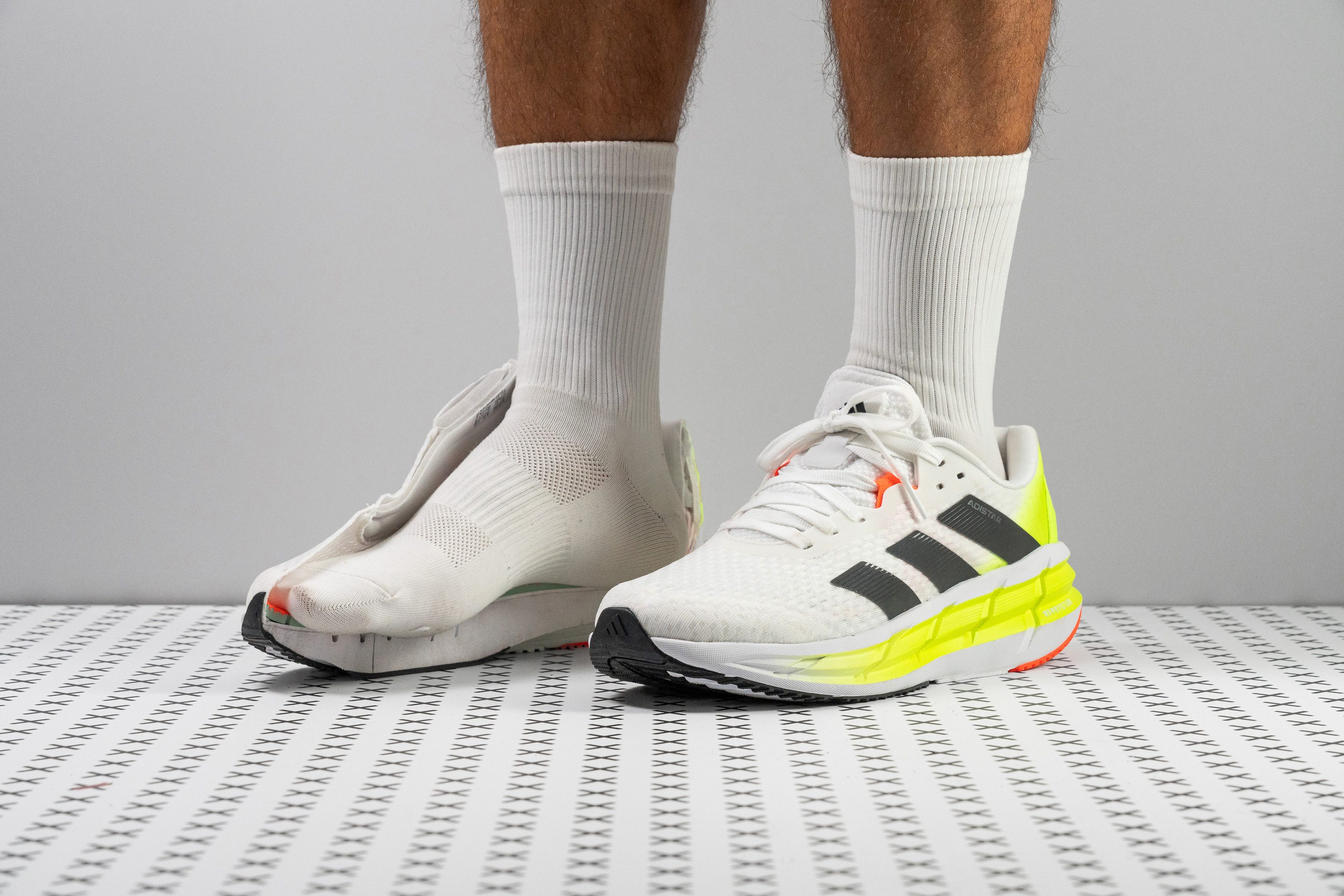Our verdict
Pros
- Amazing weight reduction
- Better running experience than v2
- Reasonably priced
- Suitable for walking
- Cushions long runs
- Breathable upper
- Exceptional all-around comfort
Cons
- No more Continental
- Lacks energy return
- Upper needs better durability
Audience verdict
- Top 27% in road running shoes
- Top 29% in neutral running shoes
Comparison
The most similar running shoes compared
+ + Add a shoe | |||||
|---|---|---|---|---|---|
| Audience score | 89 Great! | 87 Great! | 90 Superb! | 84 Good! | |
| Price | $130 | $140 | $180 | $80 | |
| Pace | Daily running | Daily running | Daily running | Daily running | |
| Shock absorption | High | High | Moderate | Moderate | |
| Energy return | Low | High | High | Moderate | |
| Traction | Moderate | High | High | High | |
| Arch support | Neutral | Neutral | Neutral | Neutral | |
| Weight lab Weight brand | 9.7 oz / 274g 9.5 oz / 270g | 8.2 oz / 232g 8.3 oz / 235g | 10.3 oz / 292g 11.4 oz / 323g | 9.2 oz / 261g 9.5 oz / 268g | |
| Lightweight | ✗ | ✓ | ✗ | ✗ | |
| Drop lab Drop brand | 10.5 mm 5.0 mm | 9.6 mm 5.0 mm | 10.6 mm 10.0 mm | 7.8 mm | |
| Strike pattern | Heel | HeelMid/forefoot | Heel | Mid/forefoot | |
| Size | True to size | True to size | True to size | Slightly small | |
| Midsole softness | Soft | Balanced | Soft | Soft | |
| Difference in midsole softness in cold | Normal | Big | Small | Normal | |
| Toebox durability | Bad | Decent | Decent | Good | |
| Heel padding durability | Decent | Bad | Good | Good | |
| Outsole durability | Good | Good | Good | Good | |
| Breathability | Breathable | Breathable | Breathable | Breathable | |
| Width / fit | Medium | Medium | Wide | Medium | |
| Toebox width | Medium | Narrow | Wide | Medium | |
| Stiffness | Moderate | Moderate | Stiff | Flexible | |
| Torsional rigidity | Stiff | Stiff | Stiff | Flexible | |
| Heel counter stiffness | Stiff | Stiff | Moderate | Moderate | |
| Rocker | ✗ | ✓ | ✗ | ✗ | |
| Heel lab Heel brand | 40.7 mm 40.0 mm | 36.0 mm 37.0 mm | 35.2 mm 39.0 mm | 35.4 mm | |
| Forefoot lab Forefoot brand | 30.2 mm 35.0 mm | 26.4 mm 32.0 mm | 24.6 mm 29.0 mm | 27.6 mm | |
| Widths available | NormalWide | NormalWide | Normal | NormalWideX-Wide | |
| Orthotic friendly | ✓ | ✓ | ✓ | ✓ | |
| Season | SummerAll seasons | SummerAll seasons | SummerAll seasons | SummerAll seasons | |
| Removable insole | ✓ | ✓ | ✓ | ✓ | |
| Ranking | #101 Top 27% | #161 Top 43% | #52 Top 14% | #252 Bottom 34% | |
| Popularity | #278 Bottom 27% | #15 Top 4% | #199 Bottom 48% | #28 Top 8% |
Who should buy
We're thrilled to recommend the Adidas Adistar 3 for:
- Fans of the previous Adistar models who demanded a lighter, more cushioned version—it delivers brilliantly on both fronts.
- Weekend warriors hitting the pavement 1 or 2 times a week who prioritize comfort in a running shoe.
- Budget-conscious buyers looking for a plush, daily trainer that doubles as a comfortable walking shoe with a breathable upper.
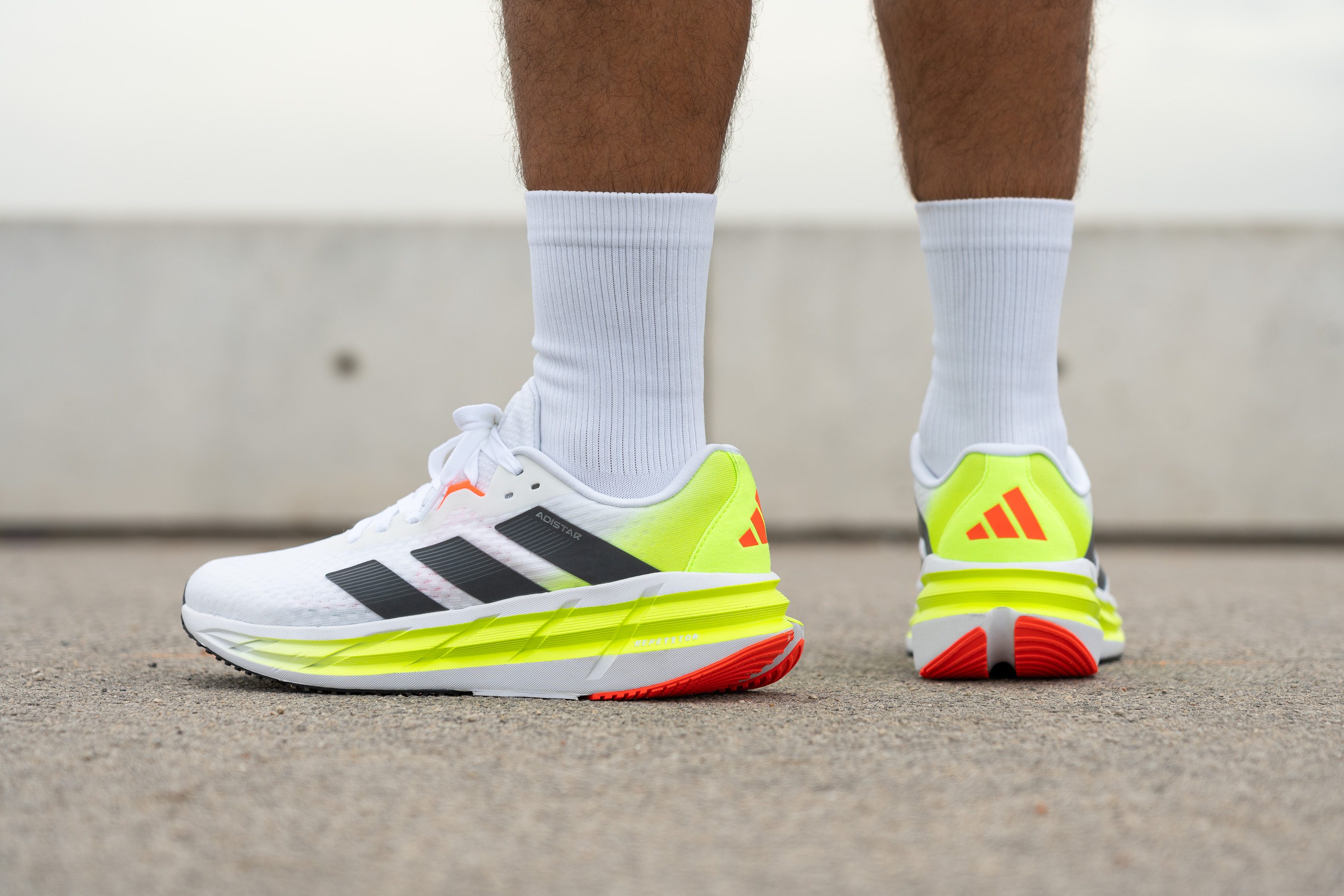
Who should NOT buy
While the Adistar 3 offers several improvements over its predecessor, we've found in the lab that its stability has significantly decreased, making it a less appealing option for runners needing good support. Instead, we suggest considering more reliable mild-stability trainers like the ASICS GT 2000 12, the lightweight Hoka Arahi 7, or the premium ASICS Gel Kayano 31.
Additionally, the energy return from the Adistar 3's REPETITOR foam is disappointing. From our evaluation, it lacks the lively feel many runners seek. Better alternatives at a good price include the Hoka Mach 6 and the ASICS Novablast 4, which both provide a much more energized running experience.
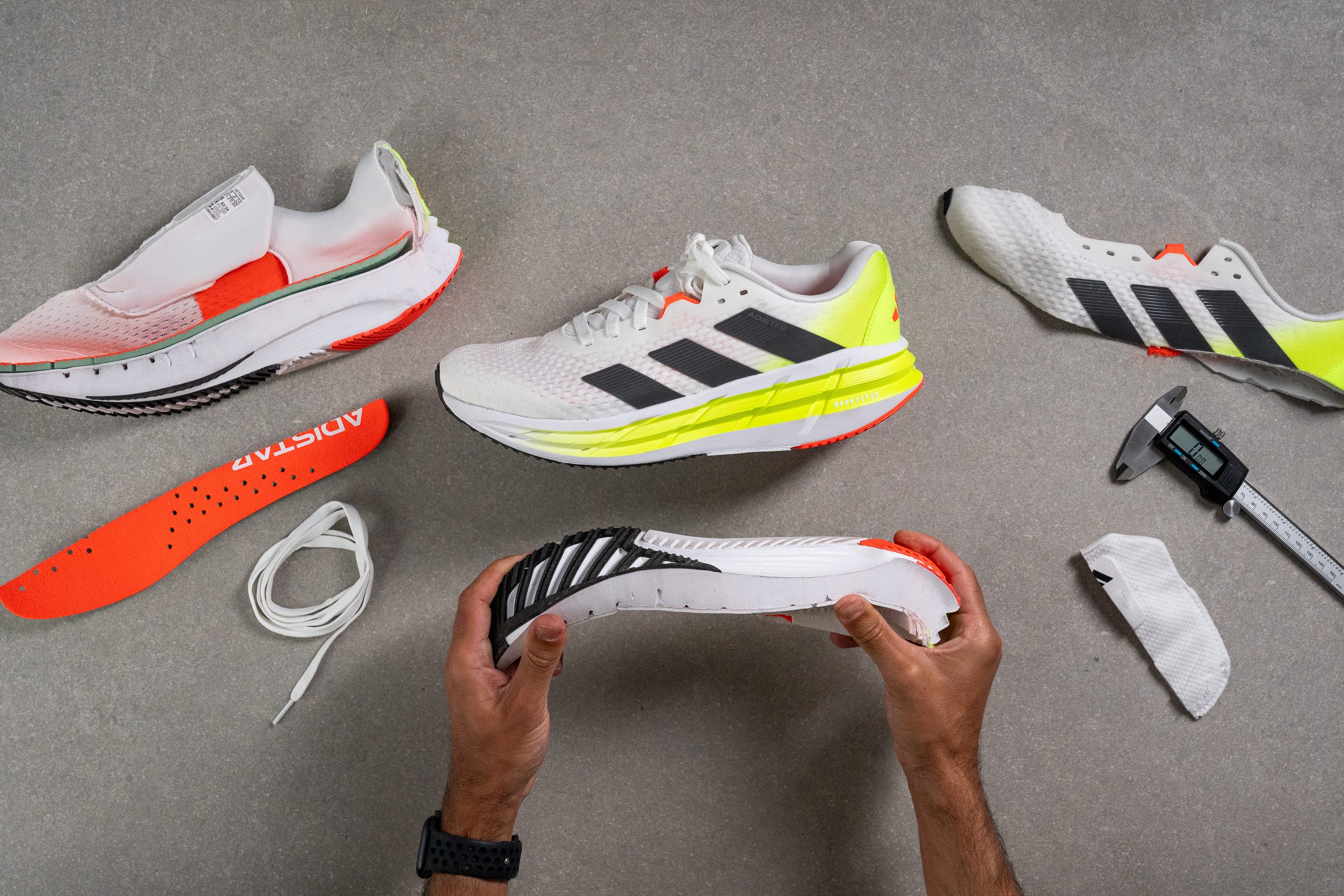
Cushioning
Shock absorption
The Adistar 3 delivers above-average shock absorption, thanks to its thick midsole that cushions each landing with ease—making it a solid pick for recovery runs. Our lab test showed a 135 SA score, more than enough to keep your feet comfortable throughout long, slow sessions.
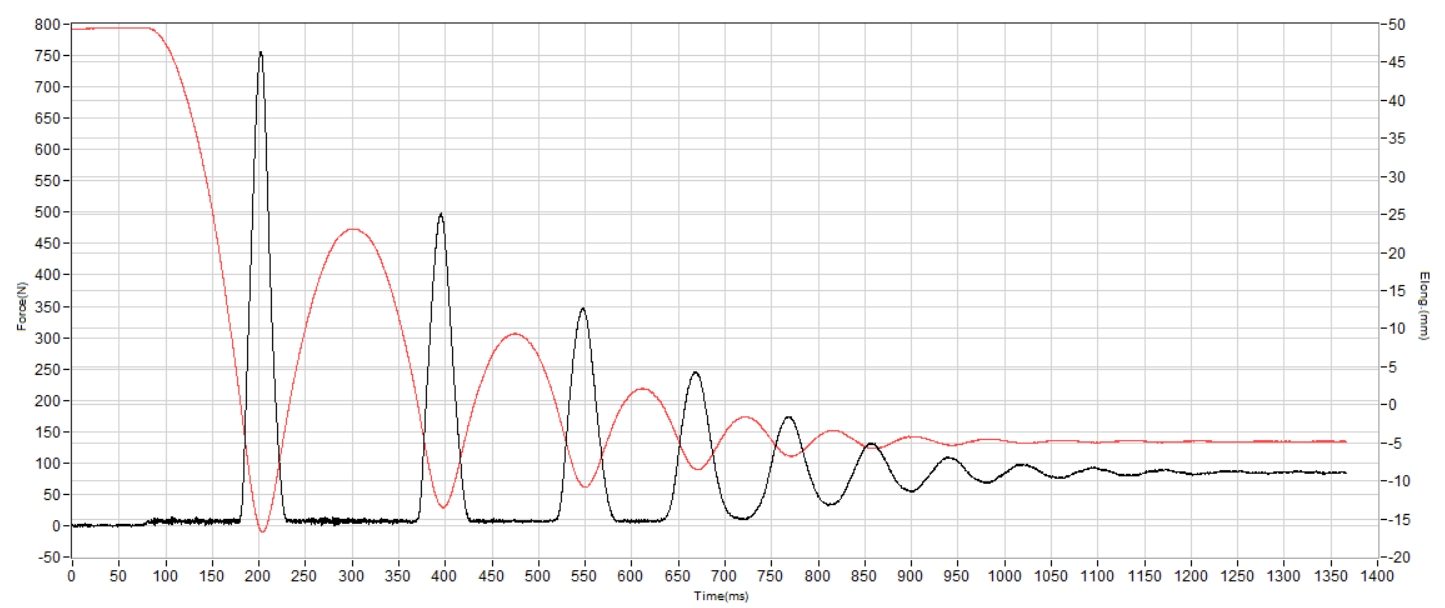
| Adistar 3 | 136 SA |
| Average | 130 SA |
Energy return
If you're after serious energy return, the Adistar 3 won't cut it. Scoring just 54% in the ASTM F1976 test, it performs just fine for easy-paced runs, but it won’t give much back when you start pushing.
That said, Adidas has much better options for rebound-hungry runners. The Ultraboost 5X, for instance, delivers 66% of energy return while keeping the ride smooth and cushioned.
| Adistar 3 | 54.0% |
| Average | 58.6% |
Heel stack
What's truly remarkable is that Adidas achieved this weight reduction while also increasing the heel stack height from 33.8 mm to 40.7 mm.
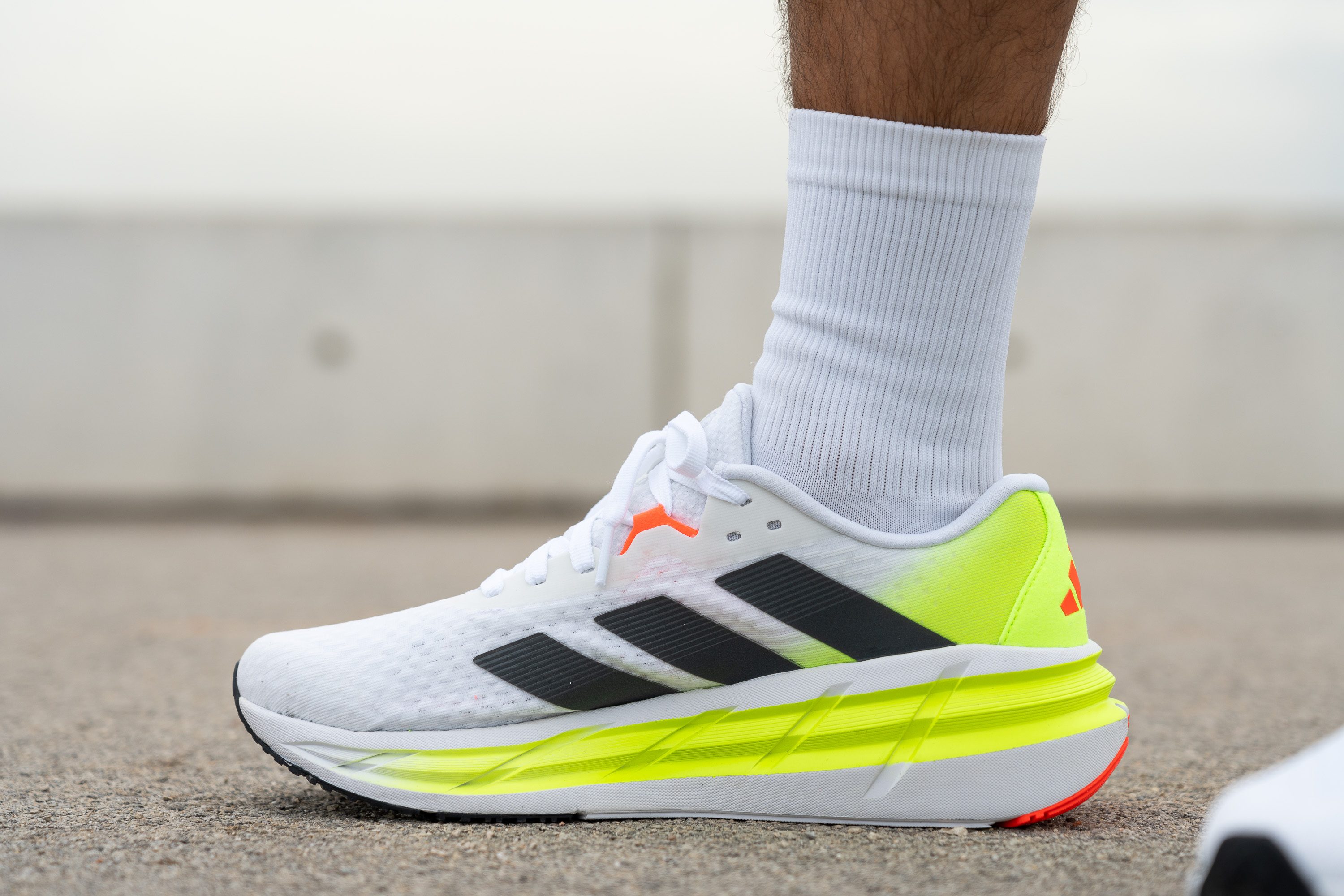
This means you enjoy more cushioning in a lighter shoe—a perfect upgrade!
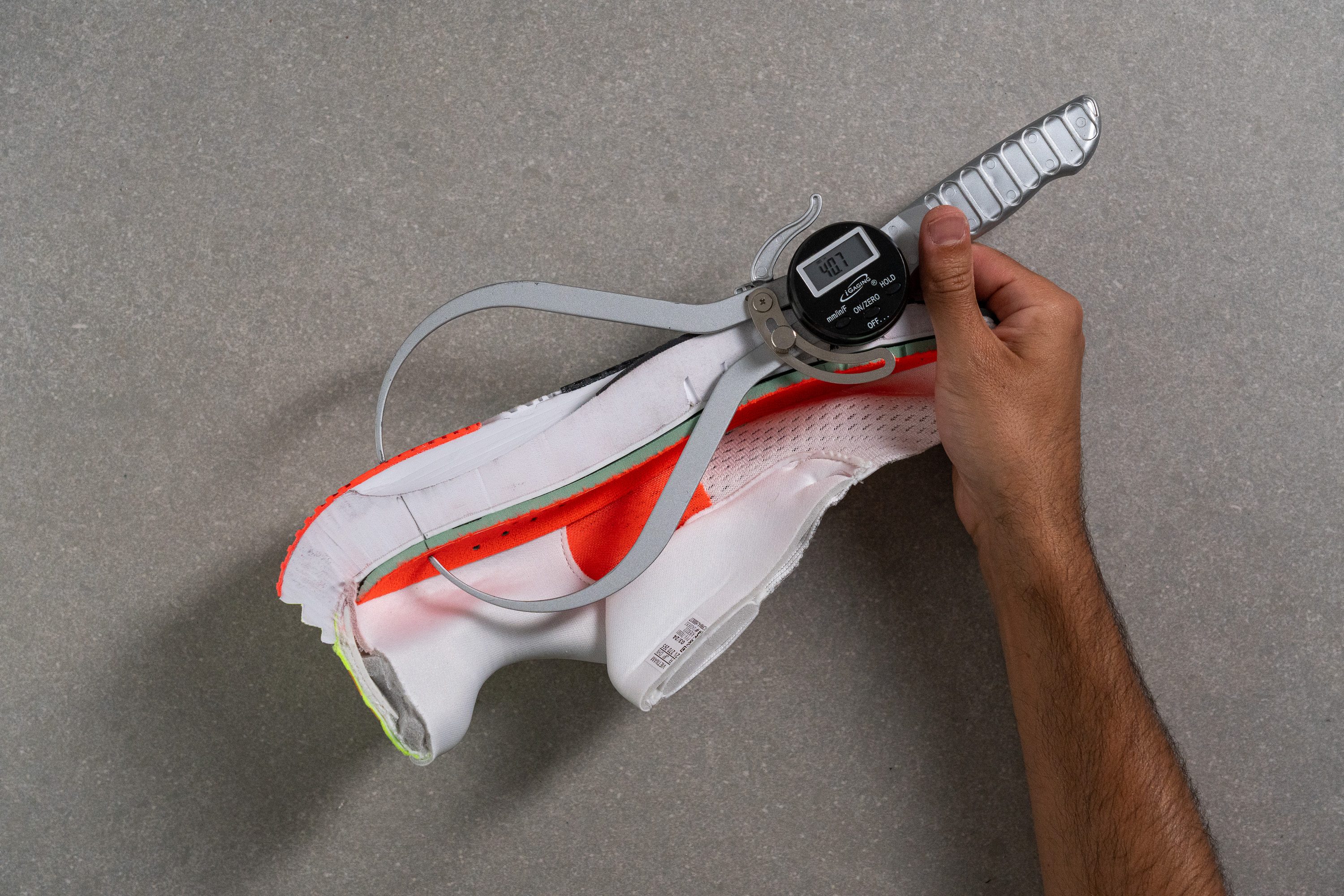
| Adistar 3 | 40.7 mm |
| Average | 34.8 mm |
Forefoot stack
The forefoot has also increased from 25.8 mm to 30.2 mm, enhancing the shoe's suitability for midfoot and forefoot strikers, particularly for those considering long runs with the Adistar 3.
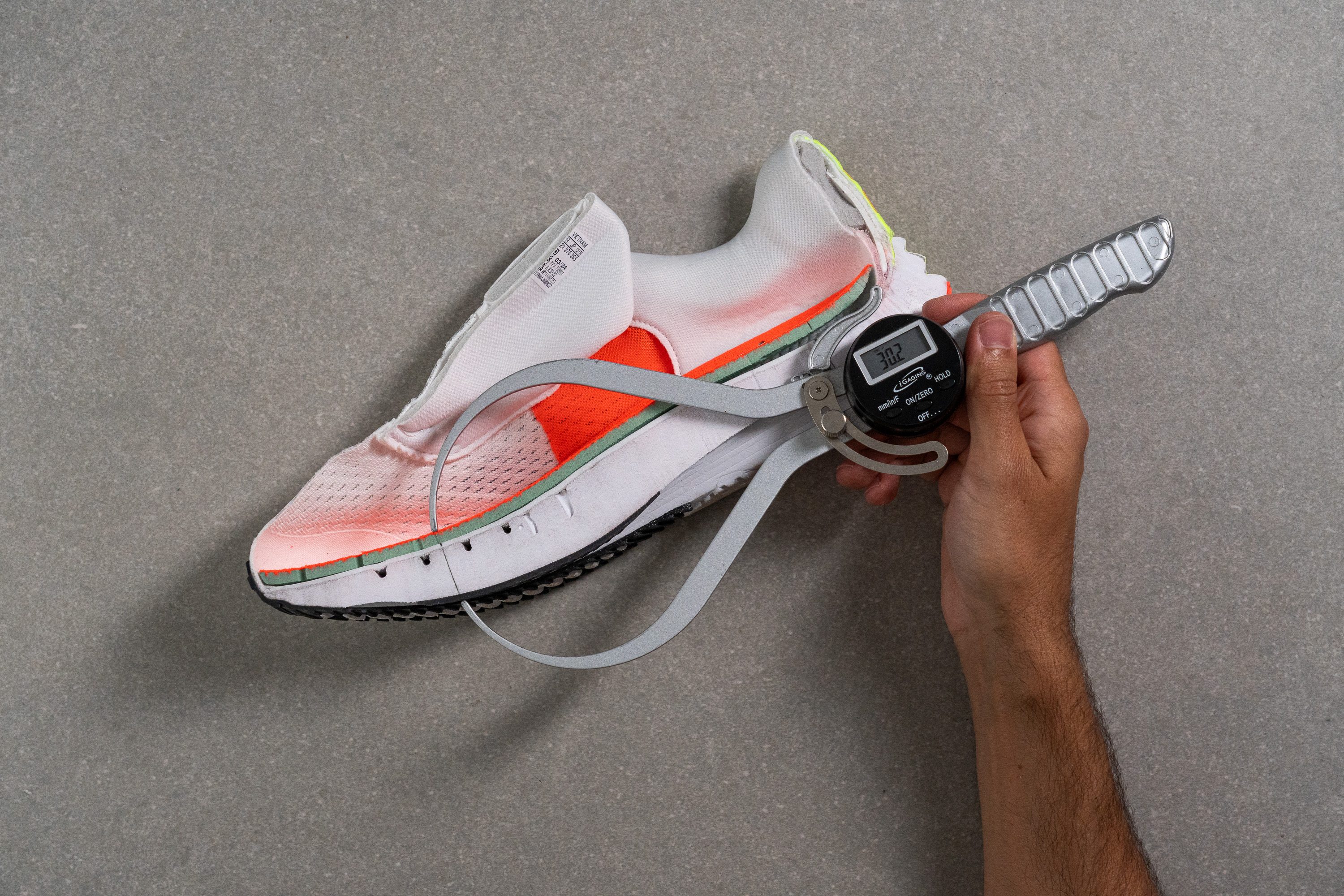
| Adistar 3 | 30.2 mm |
| Average | 26.2 mm |
Drop
Adidas claims this shoe has a 5-mm drop, yet our measurements—taken according to World Athletics guidelines—revealed it's actually more than double that amount at 10.5 mm. This higher drop makes the Adistar significantly more suitable for heel strikers than previously thought.
If you're curious about these measurement discrepancies, check out our detailed guide for more insights!
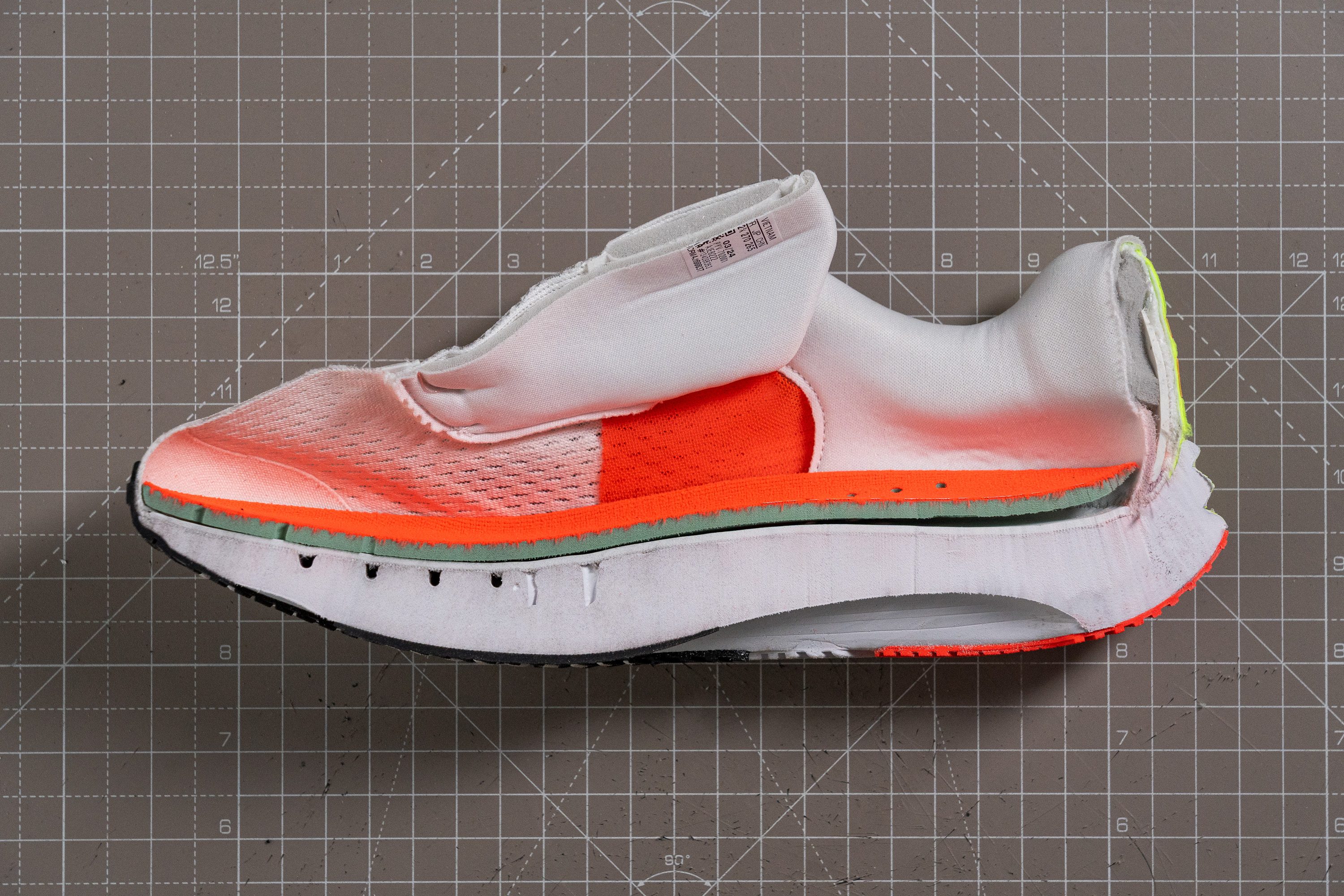
| Adistar 3 | 10.5 mm |
| Average | 8.6 mm |
Midsole softness
Among several minor enhancements, two significant factors contribute to the impressive weight reduction of the Adistar 3. We've already discussed the redesigned outsole, and the other is the revamped REPETITOR foam formulation.
The previous version of the Adistar used a dense, firm foam, but this update introduces a much lighter and plush version, contributing significantly to the weight loss. In fact, our testing shows it now measures 14.8 HA on our durometer, making it 51% softer than its predecessor!
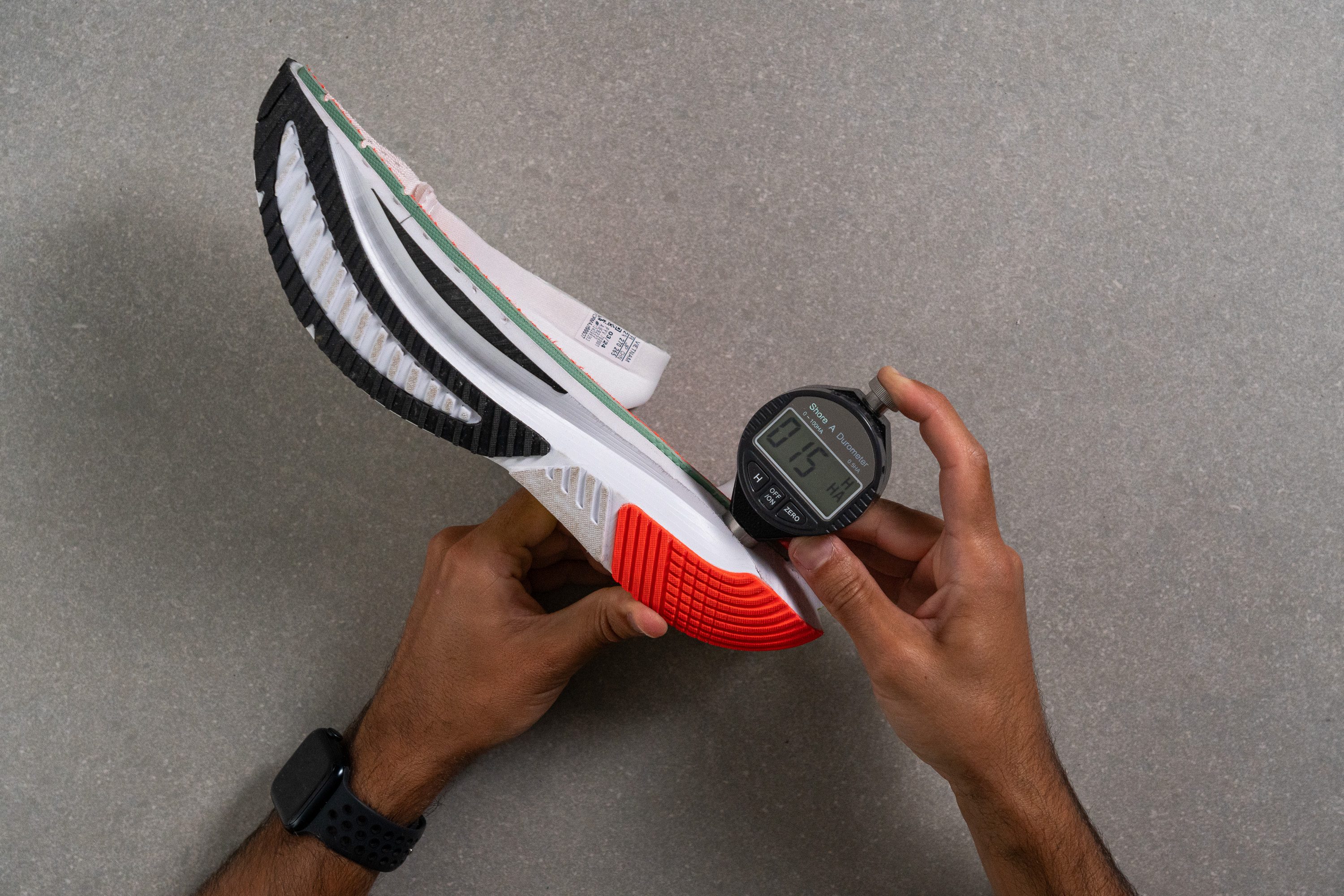
| Adistar 3 | 14.8 HA |
| Average | 20.4 HA |
Rocker
The ride lacks a pronounced rocker, which might be unexpected for some given the high stack height. However, considering the foam's compliance and the absence of a plate, we believe this shape is appropriate.
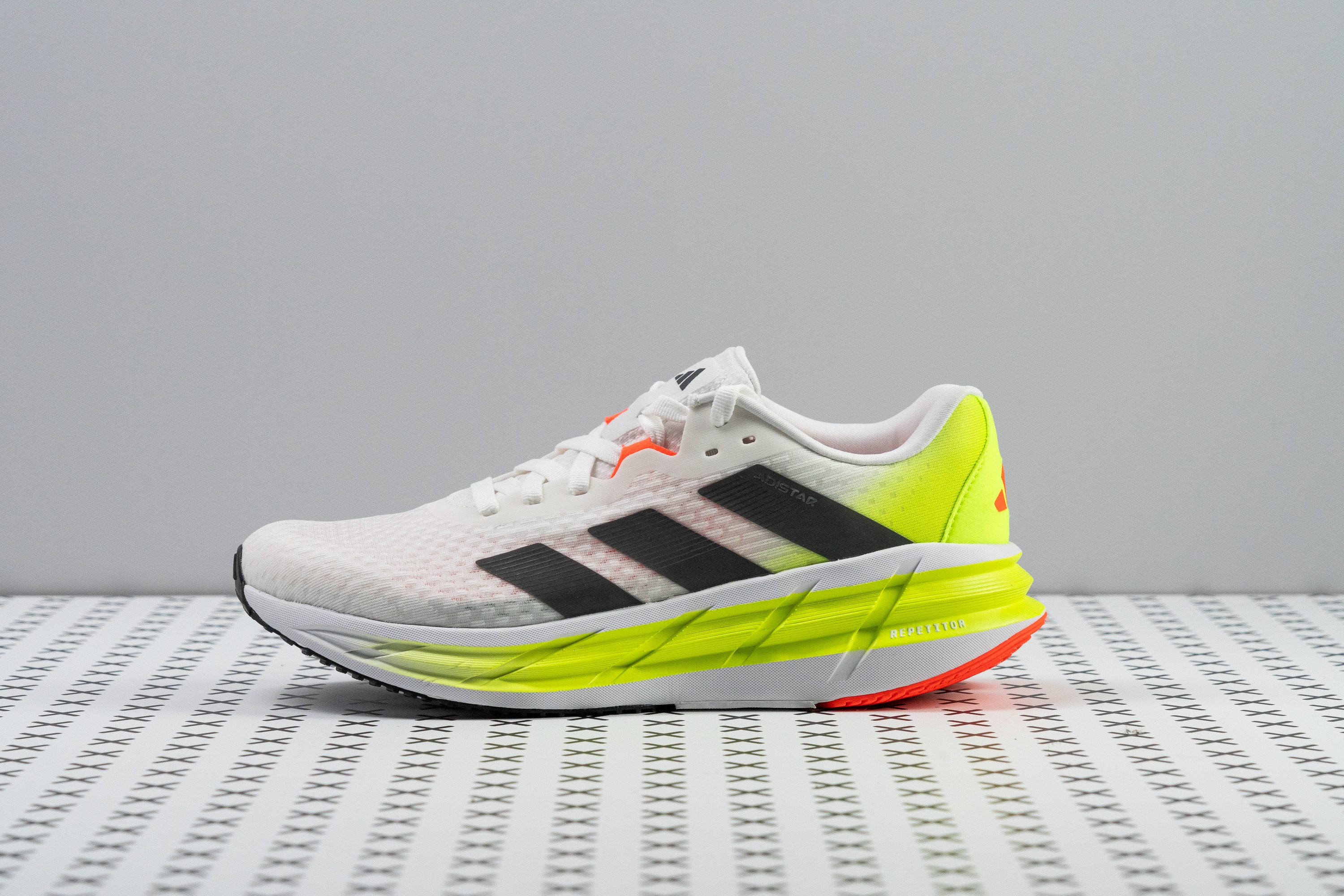
Size and fit
Size
Adidas Adistar 3 fits true to size (38 votes).
Internal length
| Adistar 3 | 274.8 mm |
| Average | 269.4 mm |
Width / Fit
We poured our custom gel into the Adistar 3 and created a gel mold of its interiors to determine its exact fit. This unique method fills every gap in the shoe, allowing us to compare it against other shoes accurately.
What we discovered left us unconcerned—it features an average-width design. We measured the widest part of the shoe and found 95.0 mm. In our view, this provides the usual amount of space for your feet, like most daily trainers.
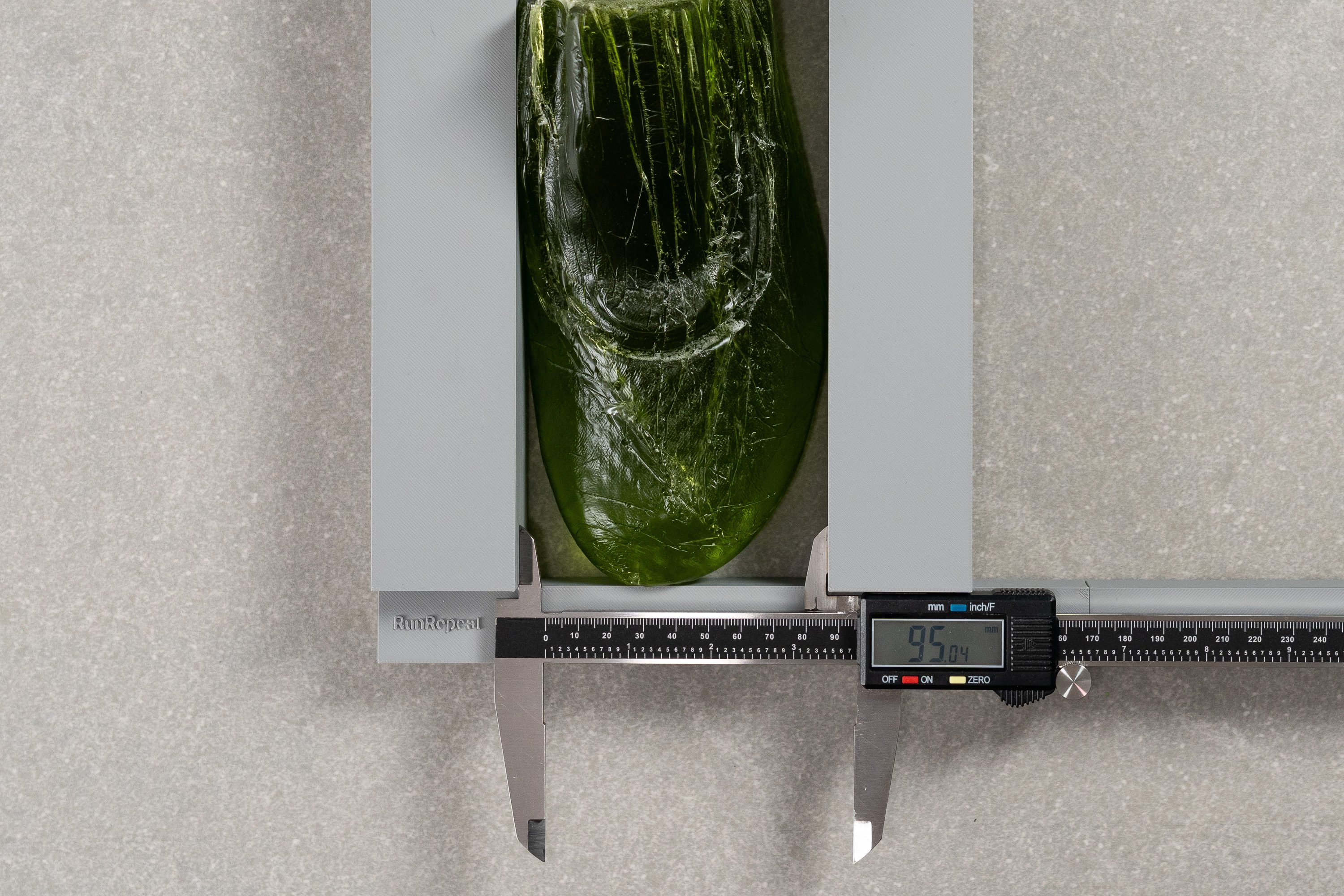
| Adistar 3 | 95.0 mm |
| Average | 95.1 mm |
Toebox width
Our width measurement of the gel mold at the toebox showed 72.6 mm. In our experience, this leans again toward an average fit.
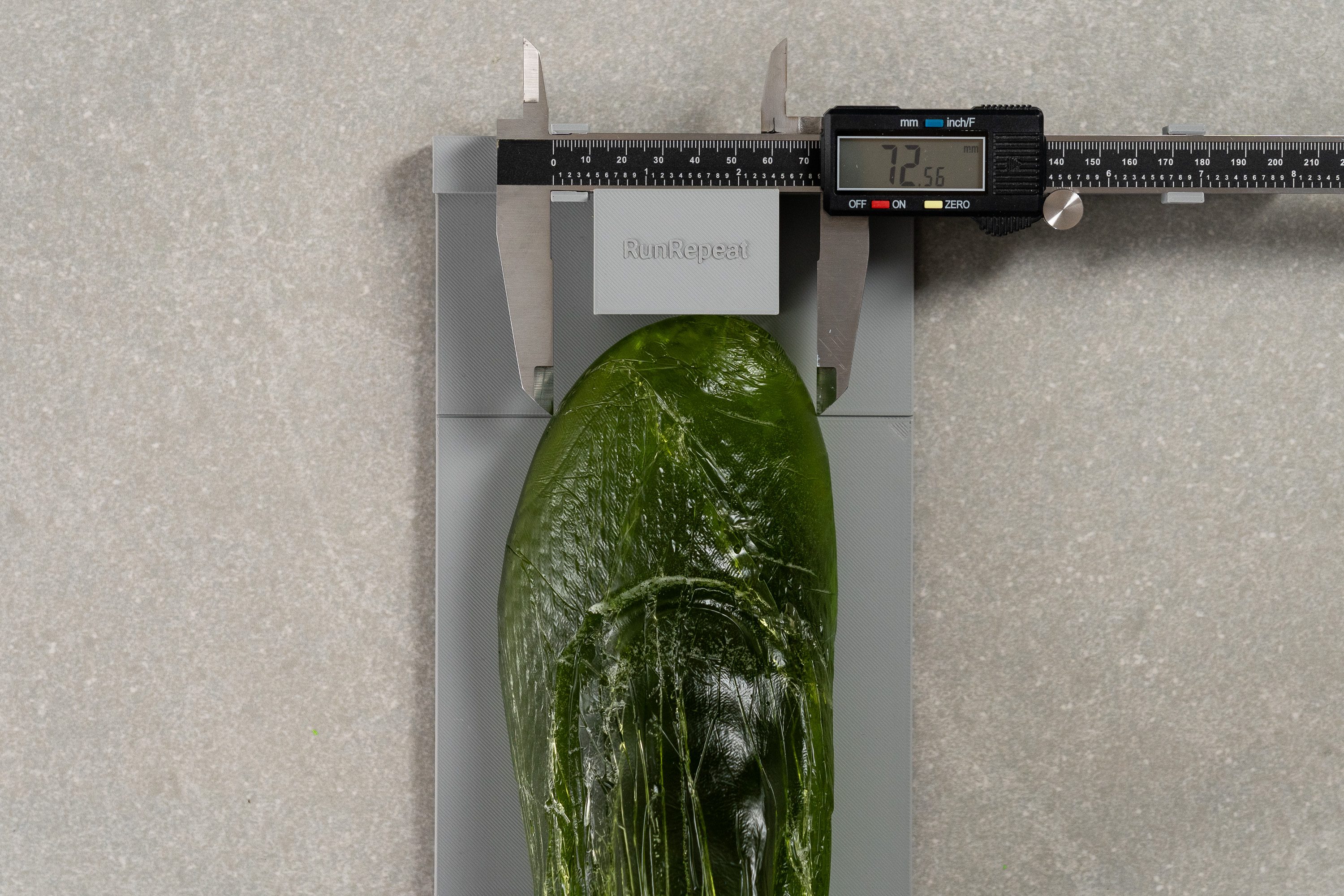
| Adistar 3 | 72.6 mm |
| Average | 73.3 mm |
Toebox height
Finally, using our new method, we accurately measured the toebox height—no biases, no guesses, just precise measurements. At 26.5 mm, the Adistar 3 continues its trend, leaning toward an average fit but slightly favoring a lower-volume design.
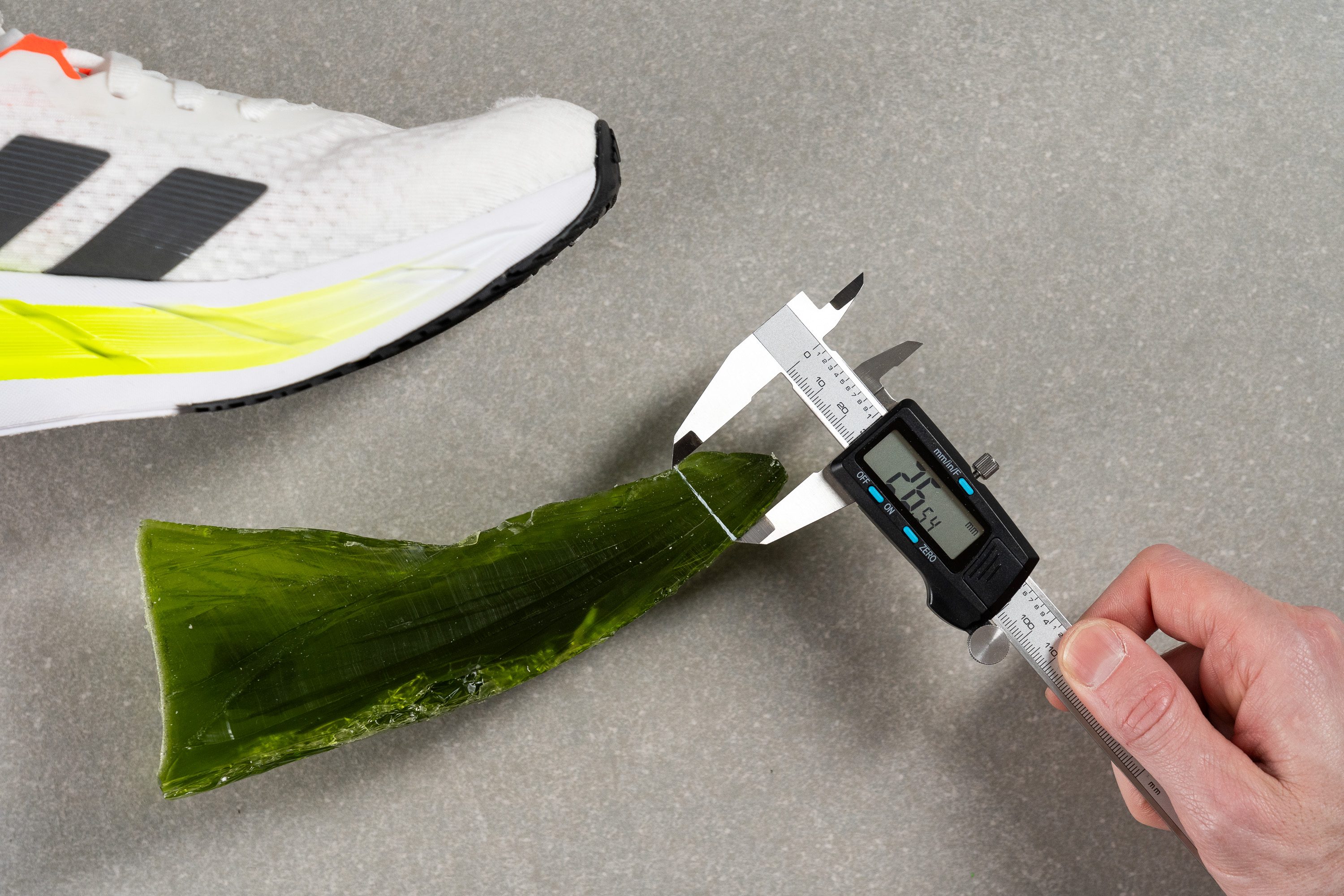
| Adistar 3 | 26.5 mm |
| Average | 27.0 mm |
Traction / Grip
Traction test
One of the standout features of the Adistar 2.0 was its Continental outsole—famous for its durability-meets-grip formula. Sadly, Adidas switched to Adiwear in the latest version to cut some costs, and it shows with a 0.40 score.
This still means reliable grip in most weather conditions, but nothing groundbreaking.
| Adistar 3 | 0.40 |
| Average | 0.49 |
Outsole design
The outsole includes a deep central hollow running from heel to toe, aiding in centering the feet with each stride. Additionally, the outsole coverage is not generous at all, possibly as a measure to reduce weight.
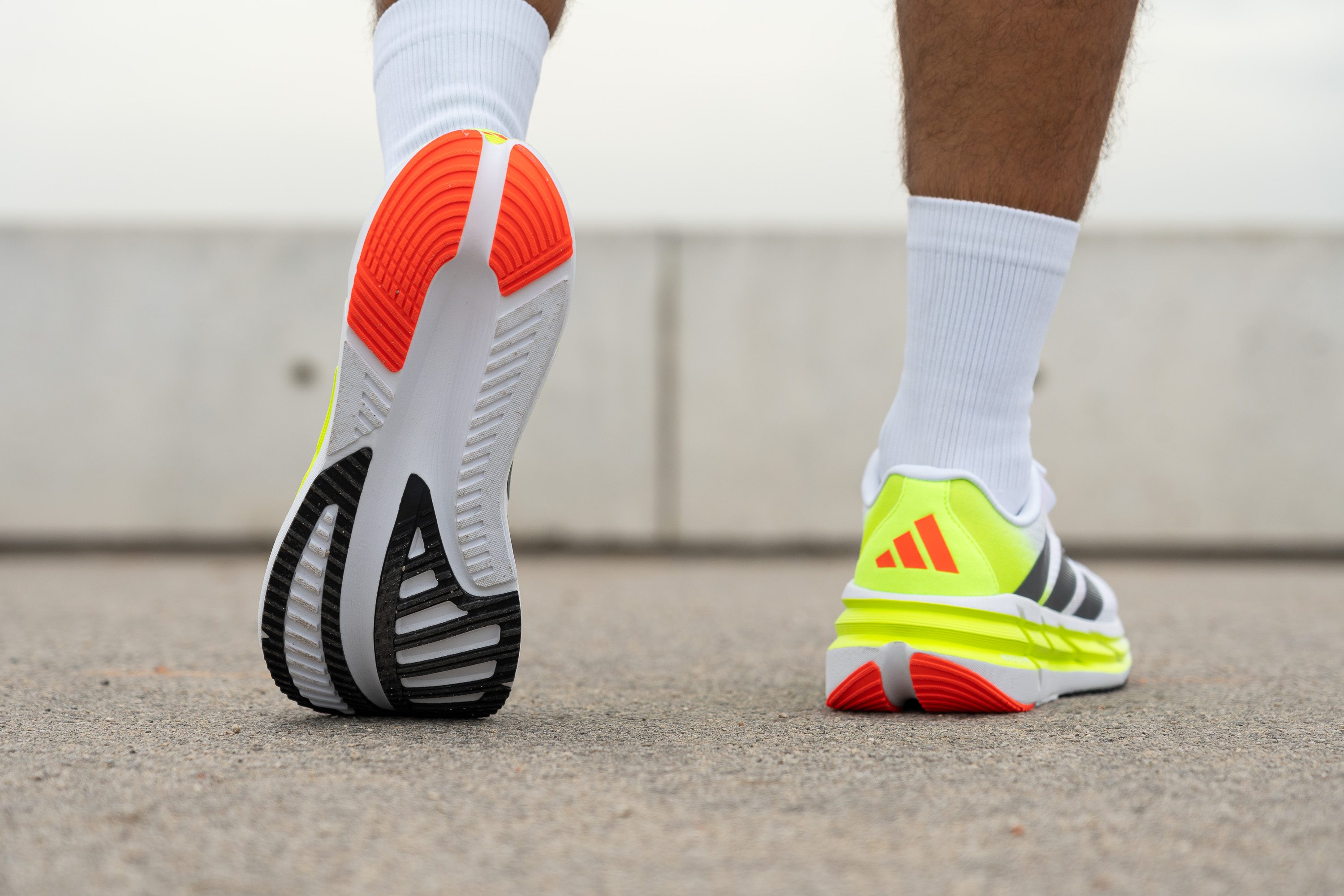
Flexibility / Stiffness
Amid the plethora of stiff, maximalist running shoes coming into the market, the Adistar 3 is a great alternative with its more traditional and natural feel.
Our lab results highlighted the exceptional flexibility of this model, registering a remarkable 12.3N in our 30-degree bend test—proof of its versatility not only for running but also for casual wear.
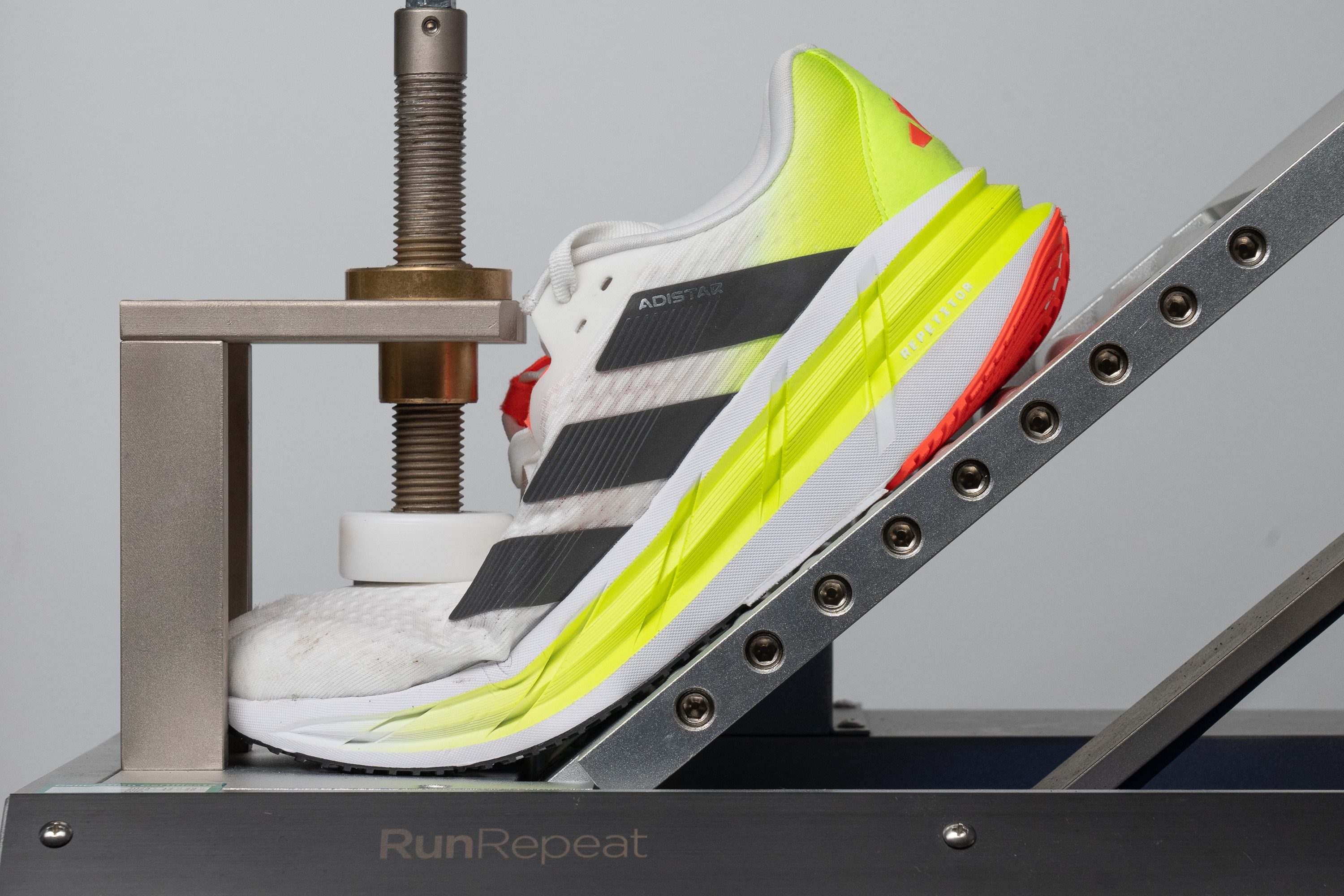
| Adistar 3 | 12.3N |
| Average | 15.3N |
Stiffness in cold (%)
Following our second freezer test, the results were quite pleasing, showing only a 25.1% increase in stiffness. Another successful outcome!
| Adistar 3 | 25% |
| Average | 33% |
Weight
The previous version of the Adidas Adistar 2.0 was notably heavy, tipping the scales at 11.6 oz or 327g, which clearly indicated a need for an effective diet.
We're thrilled to report that Adidas successfully slimmed down the third version—it now registers at just 9.7 oz or 274g. This nearly 2-ounce drop in weight is a massive improvement that would certainly impress even the most demanding nutritionist!
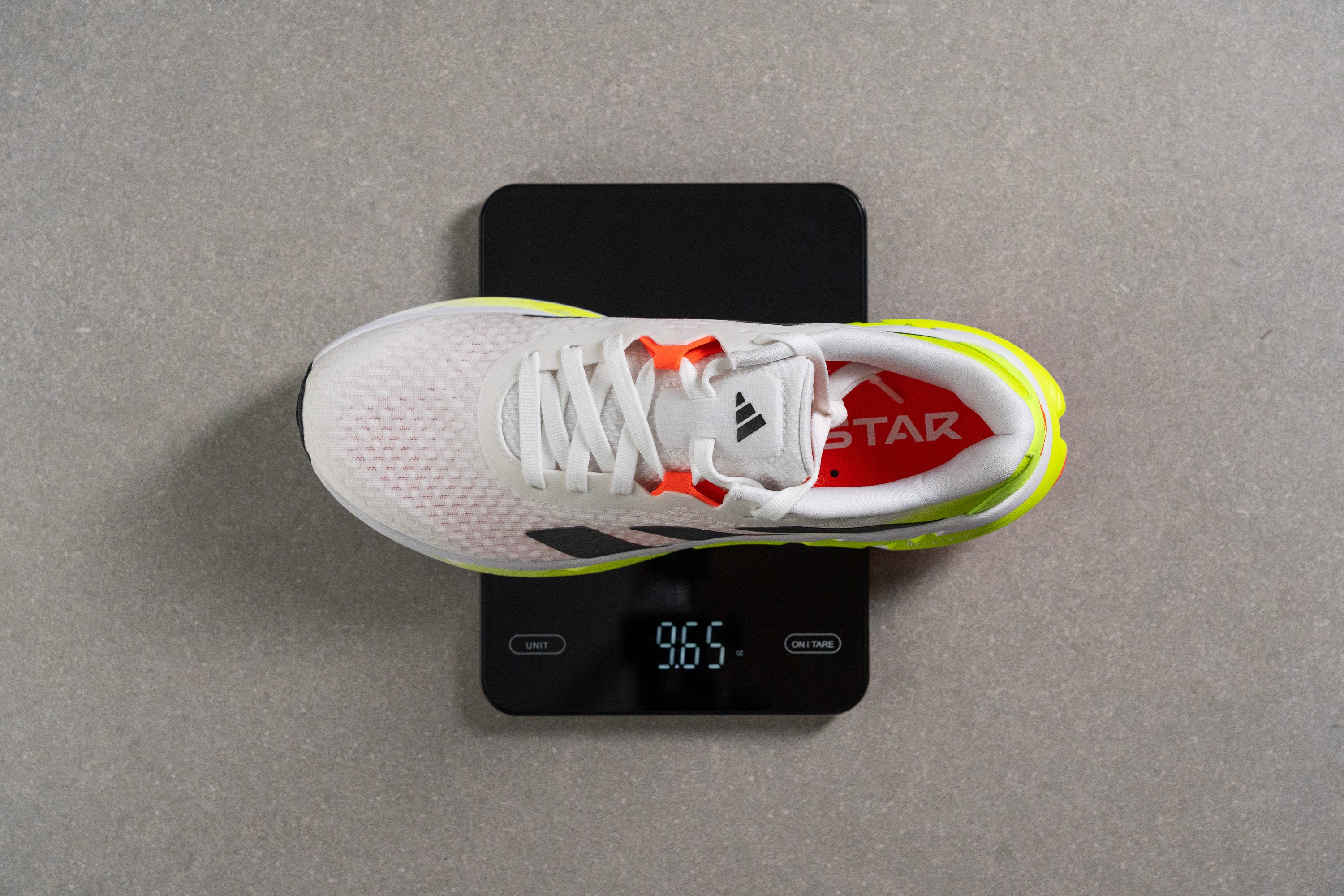
| Adistar 3 | 9.7 oz (274g) |
| Average | 9.3 oz (264g) |
Breathability
A comfortable running shoe must be breathable, and the Adistar 3 truly excelled in this aspect. When tested with our custom smoke-pumping machine, it scored a perfect 5 out of 5—the highest possible rating.
Adidas has focused on enhancing ventilation in the toebox and midfoot, a feature that's clearly evident when we shine a powerful light behind the upper. Can you notice the stark contrast between the front and the rear of the shoe?
After confirming its breathability and alleviating any concerns—especially since the Adistar 2.0 also performed well in this test—we examined the engineered single-layer mesh upper under a microscope.
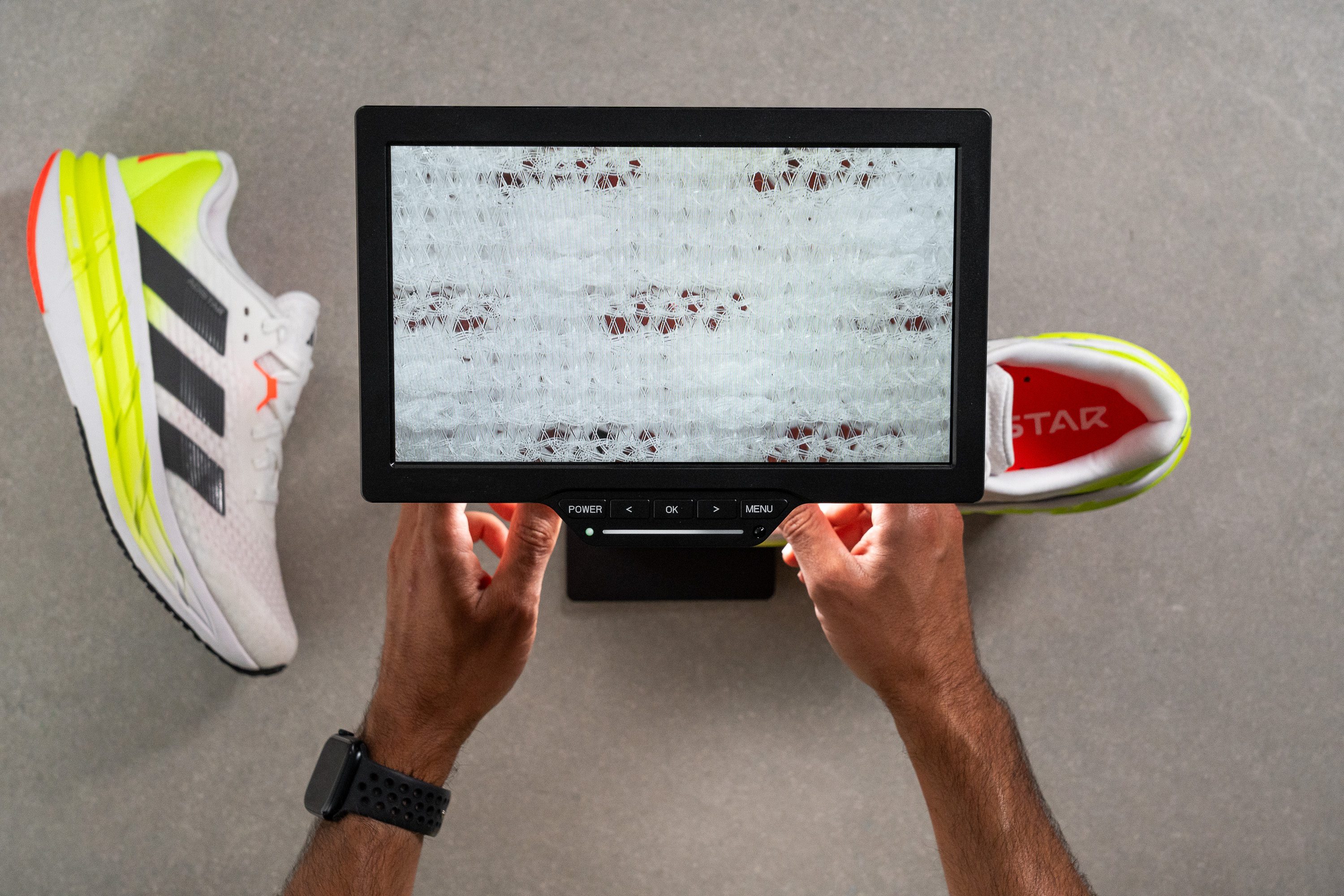
Using this tool, we observed a classic engineered mesh pattern, dotted with ample ventilation holes across the toebox, which contributed to its top score. However, the mesh doesn’t appear very sturdy, but we will evaluate that shortly.
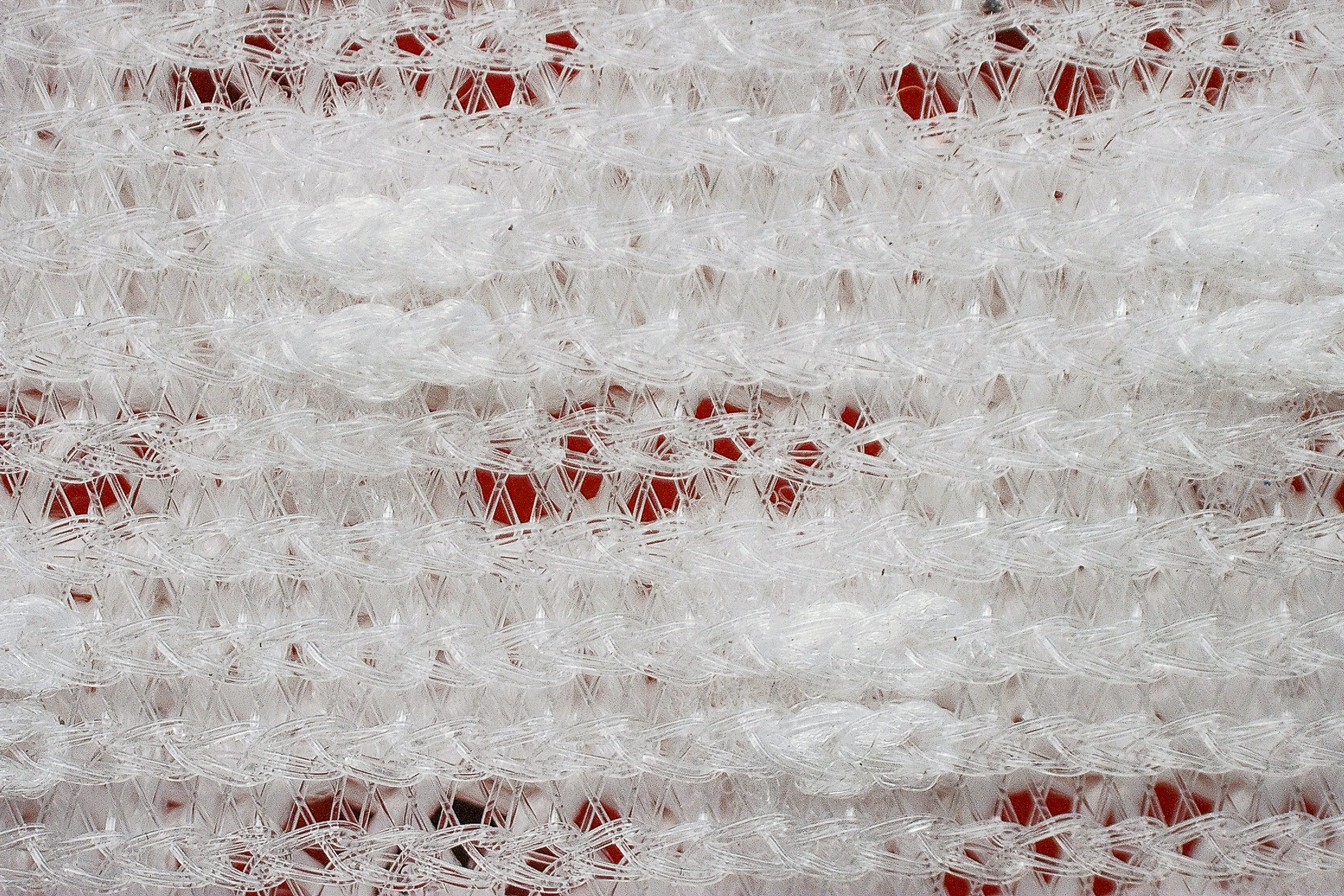
Upon cutting the upper from the shoe, we noted its excellent quality, especially considering the Adistar's reasonable price point. It features substantial padding in crucial areas!
And, as Steve Jobs loved to say, there’s one more thing: we discovered a perforated insole, a feature typically found in more expensive shoes, enhancing heat and moisture dissipation.
| Adistar 3 | 5 |
| Average | 3.7 |
Stability
Lateral stability test
There are no miracles when it comes to stability, and the Adistar 3 proves this—its midsole is both softer and taller, yet the platform isn't wider, resulting in a noticeable decrease in stability.
Is this a deal-breaker? It depends. Neutral runners will surely appreciate like these changes, but for those who require more stability and were fans of the previous version, we advise against upgrading to this model.
Torsional rigidity
Adidas maintained the rigidity seen in the previous model, which aligns with our expectations given the softer foam, but offset by a significant increase in stack height which adds stiffness.
| Adistar 3 | 4 |
| Average | 3.5 |
Heel counter stiffness
During both our manual inspection and active testing, the heel counter of the Adistar 3 proved to be stiff, scoring 4/5. But this version is generously outfitted with ample padding around the entire heel area, enhancing comfort for all wearers!
| Adistar 3 | 4 |
| Average | 2.9 |
Midsole width - forefoot
Initially, we noted that the Adistar hadn't expanded laterally—this was confirmed when our measurements revealed a slight reduction to 113.4 mm from 118.1 mm in the forefoot.
While this change renders the shoe more streamlined and agile, it does compromise stability. We believe this model is best suited for neutral runners seeking a dynamic ride over support.
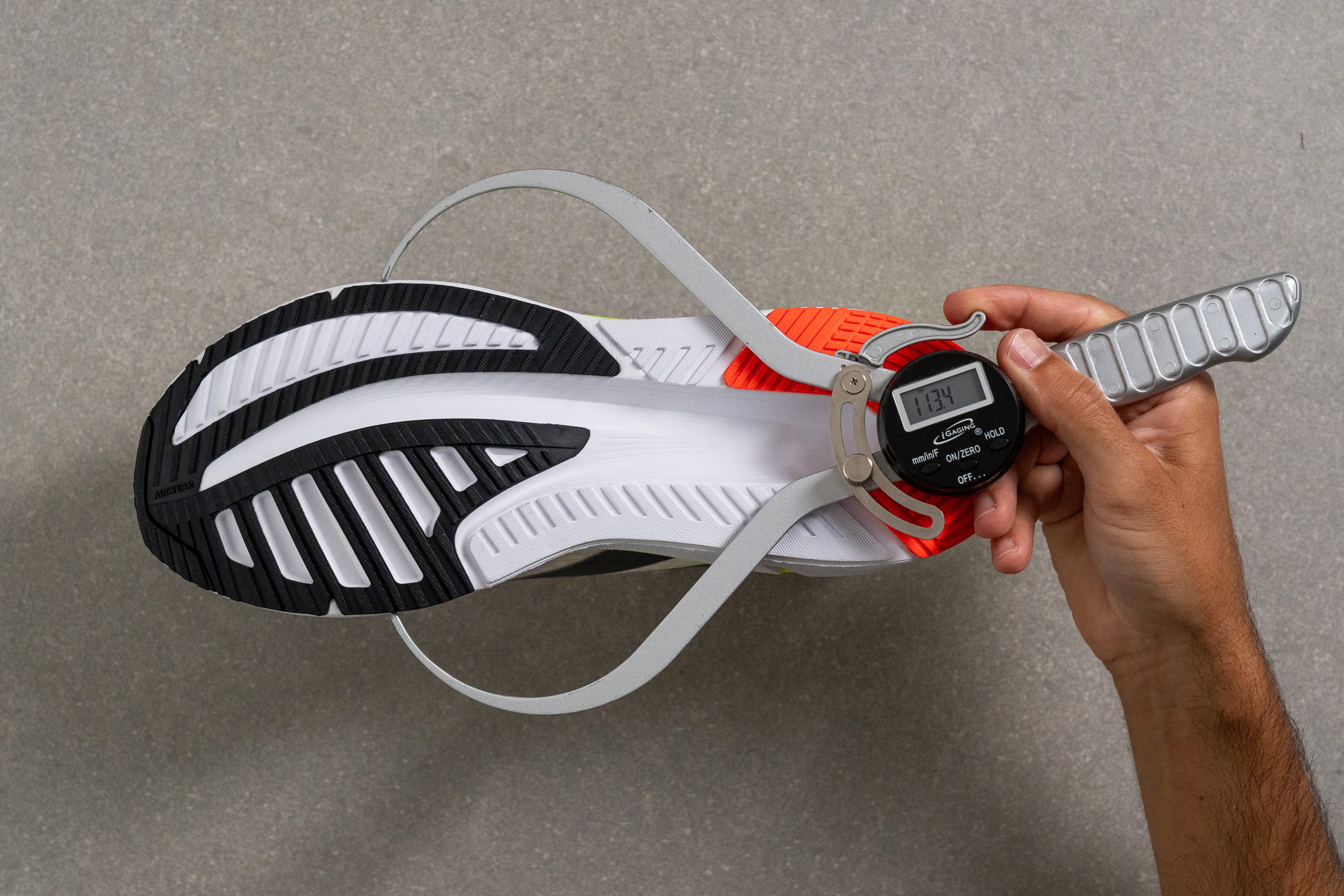
| Adistar 3 | 113.4 mm |
| Average | 114.4 mm |
Midsole width - heel
Adidas also trimmed the heel, reducing it from 96.1 mm to 91.9 mm, which contributes to the shoe's lighter weight yet at the expense of stability. This isn't necessarily good or bad; it simply marks a design change from the previous version of the shoe, offering a different running experience.
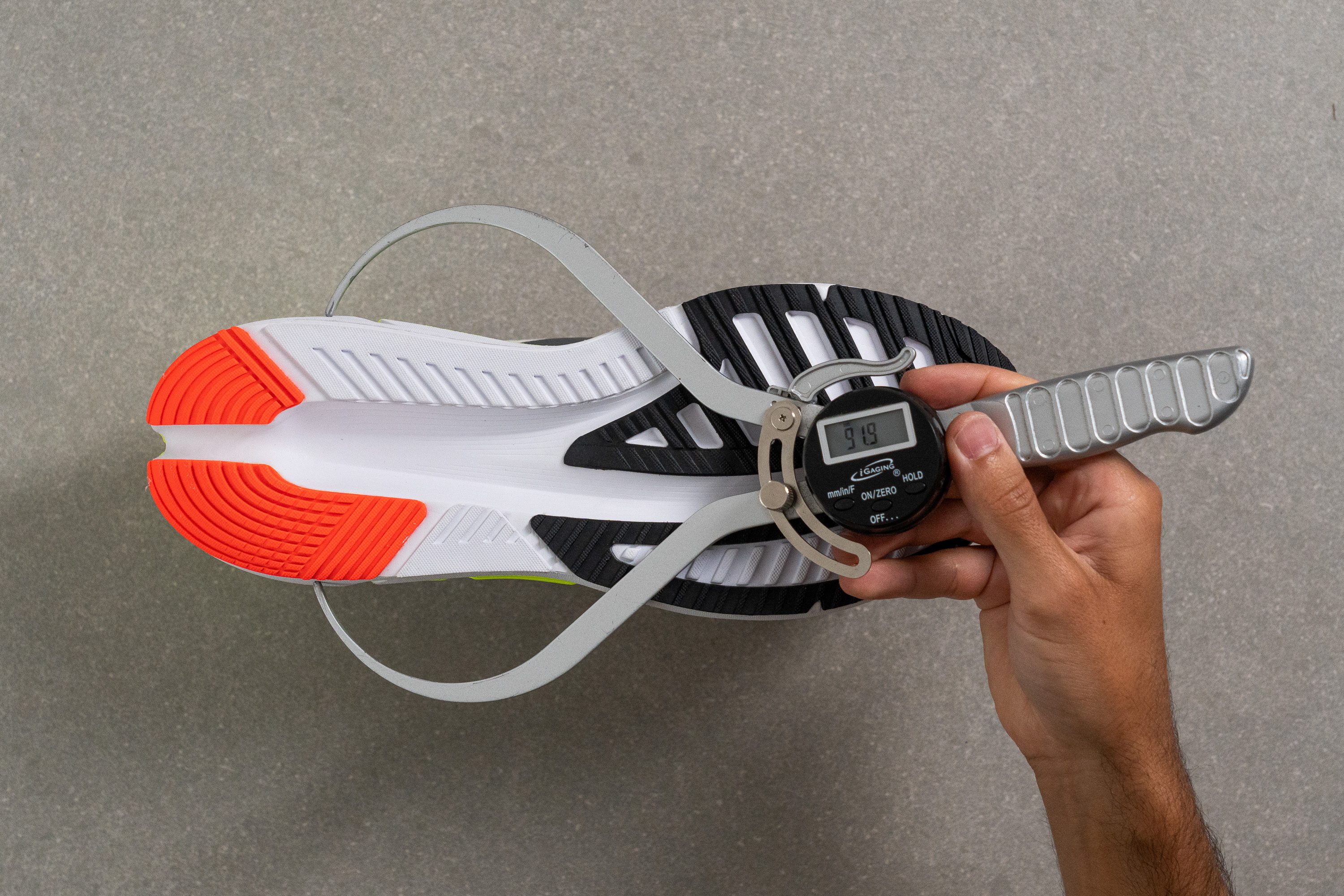
| Adistar 3 | 91.9 mm |
| Average | 90.6 mm |
Durability
Toebox durability
We put the engineered mesh upper to the test, and the results were as expected—disappointing.
The material is so thin and overly ventilated that it gave in almost instantly under our Dremel tool. Regrettably, we had no choice but to rate it poorly, at a mere 1 out of 5.
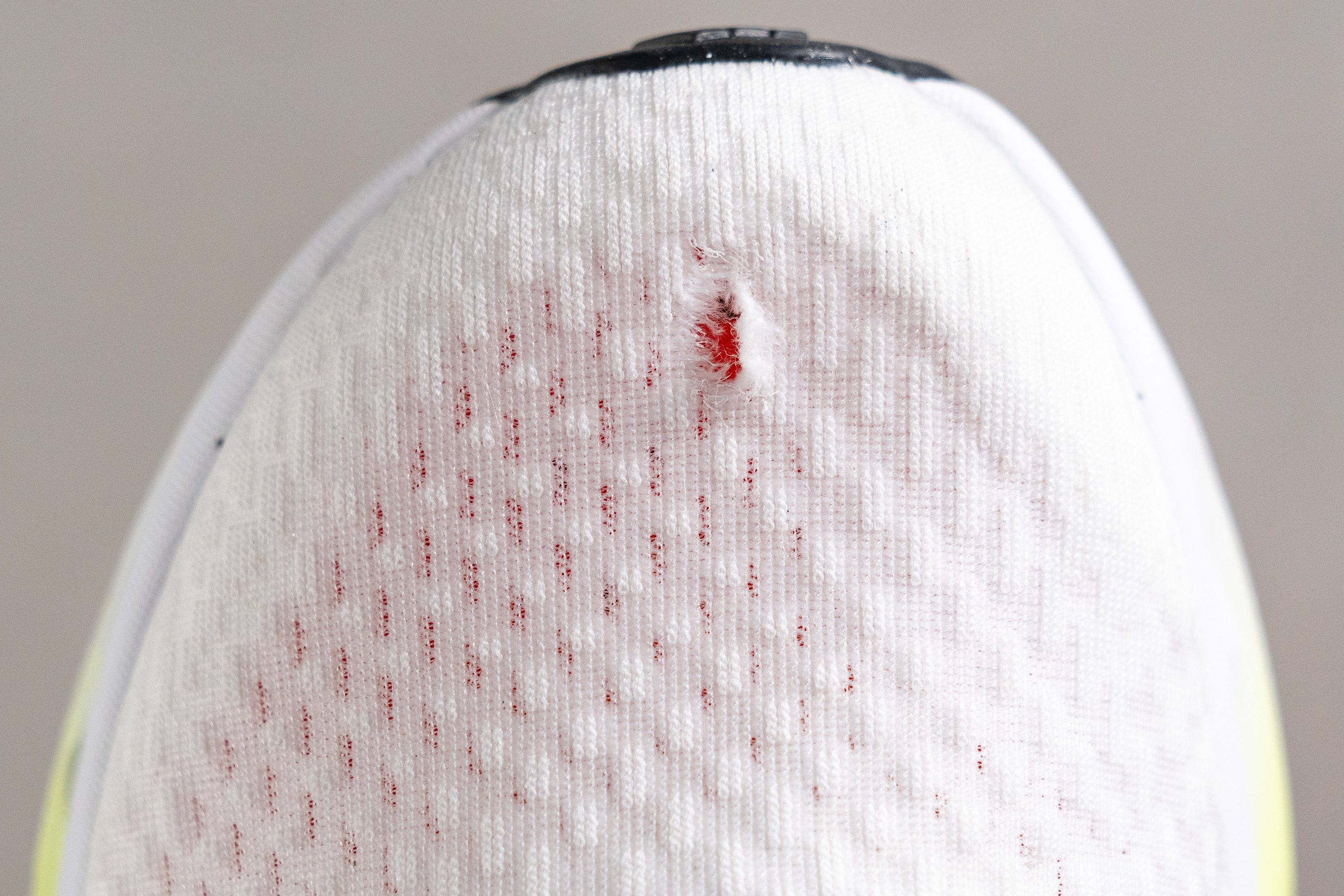
| Adistar 3 | 1 |
| Average | 2.6 |
Heel padding durability
The heel padding on the Adistar 3 performed slightly better, earning a 3 out of 5, yet it still fell short of our expectations for a daily trainer.
It's becoming apparent that durability may not be a standout feature of the Adistar 3.
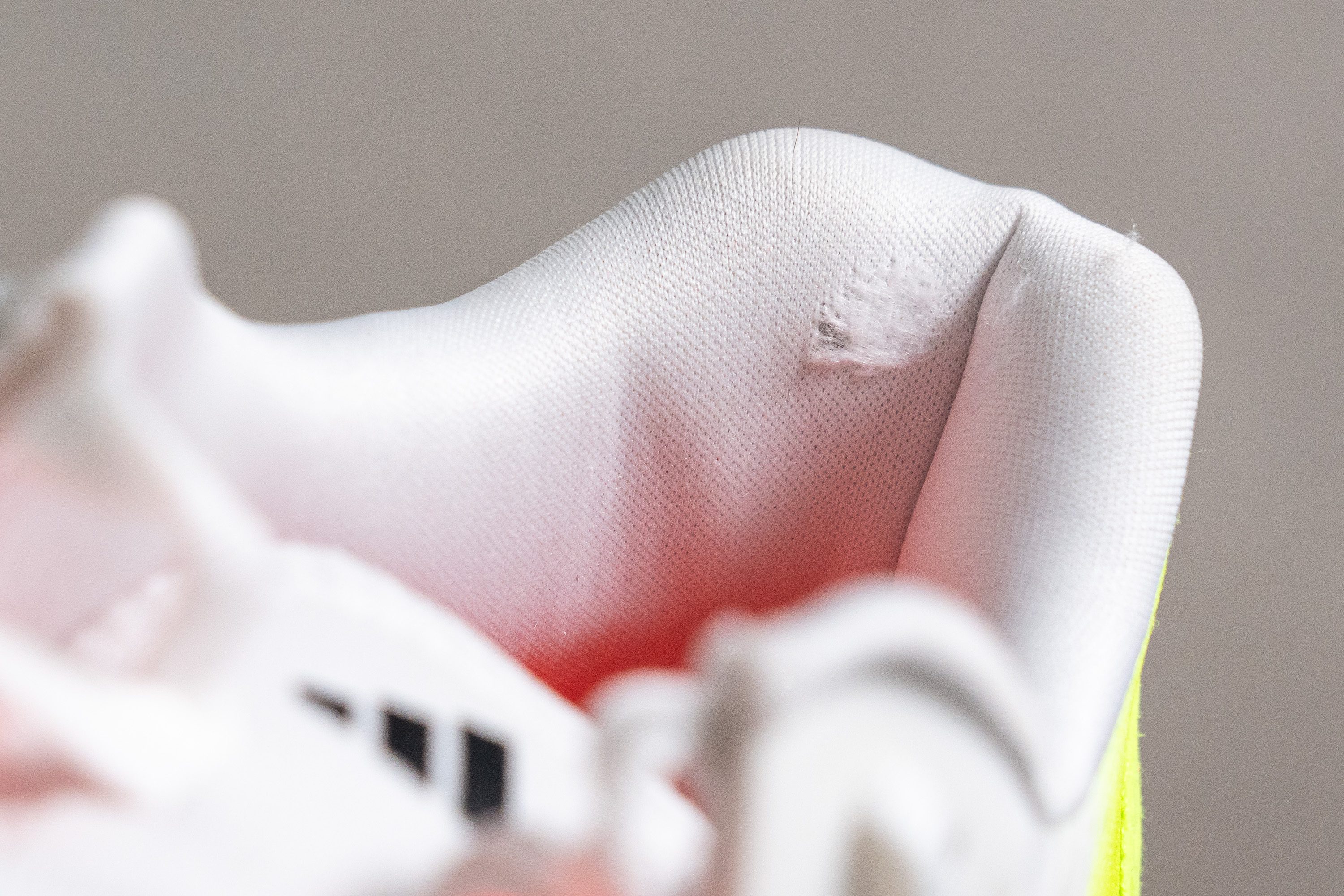
| Adistar 3 | 3 |
| Average | 3.4 |
Outsole durability
Keen to evaluate the durability of Adiwear, we conducted a rigorous Dremel test to measure its wear resistance.
Our findings showed a wear depth of 1.0 mm—essentially average and aligning well with our previous durometer results. Consequently, we believe you can anticipate typical wear with this shoe, although it may not suffice for those who are particularly tough on their outsoles.
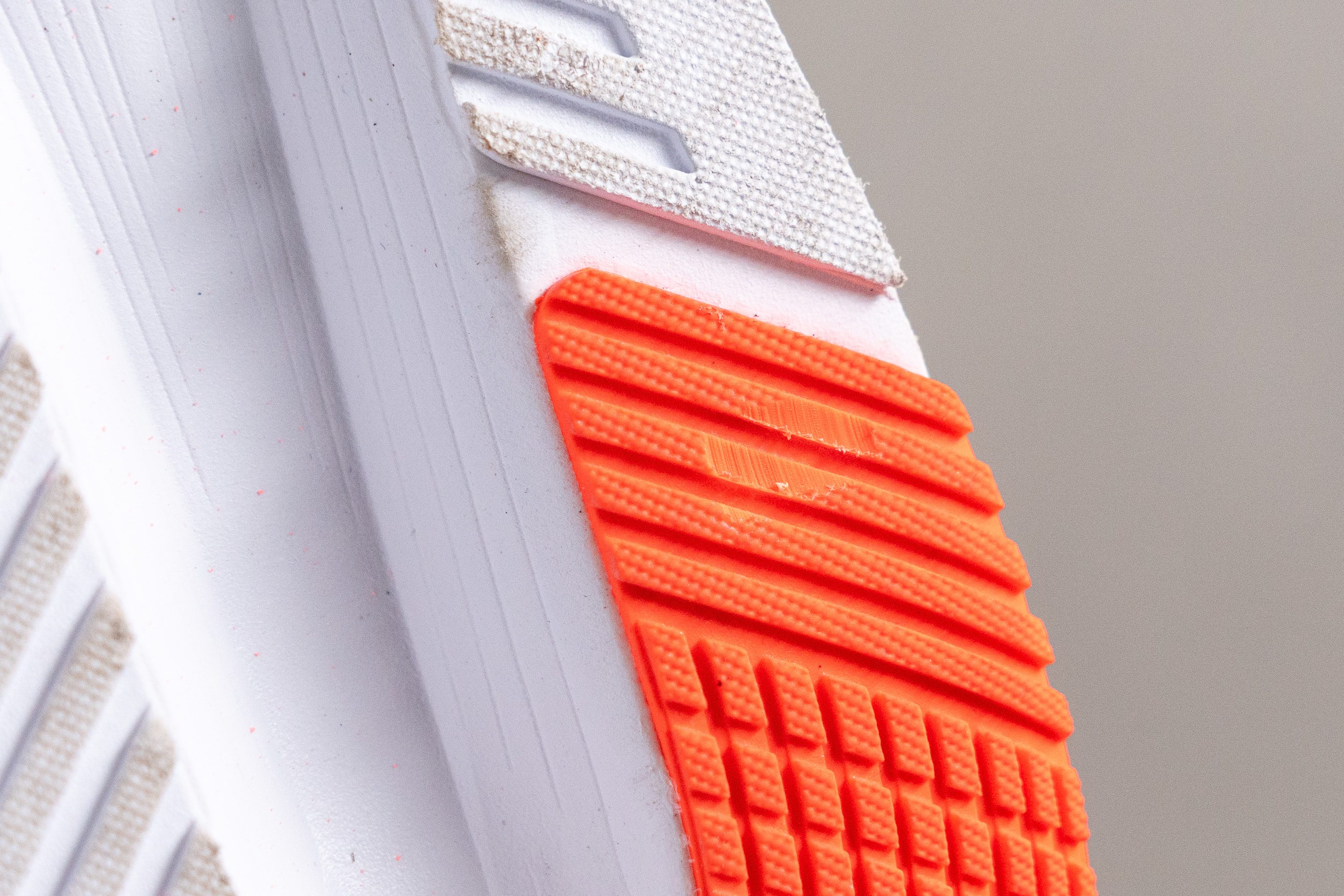
| Adistar 3 | 1.0 mm |
| Average | 1.1 mm |
Outsole thickness
In our final step of assessing the outsole, we utilized vernier calipers to gauge its thickness. The measurement came in at 3.0 mm.
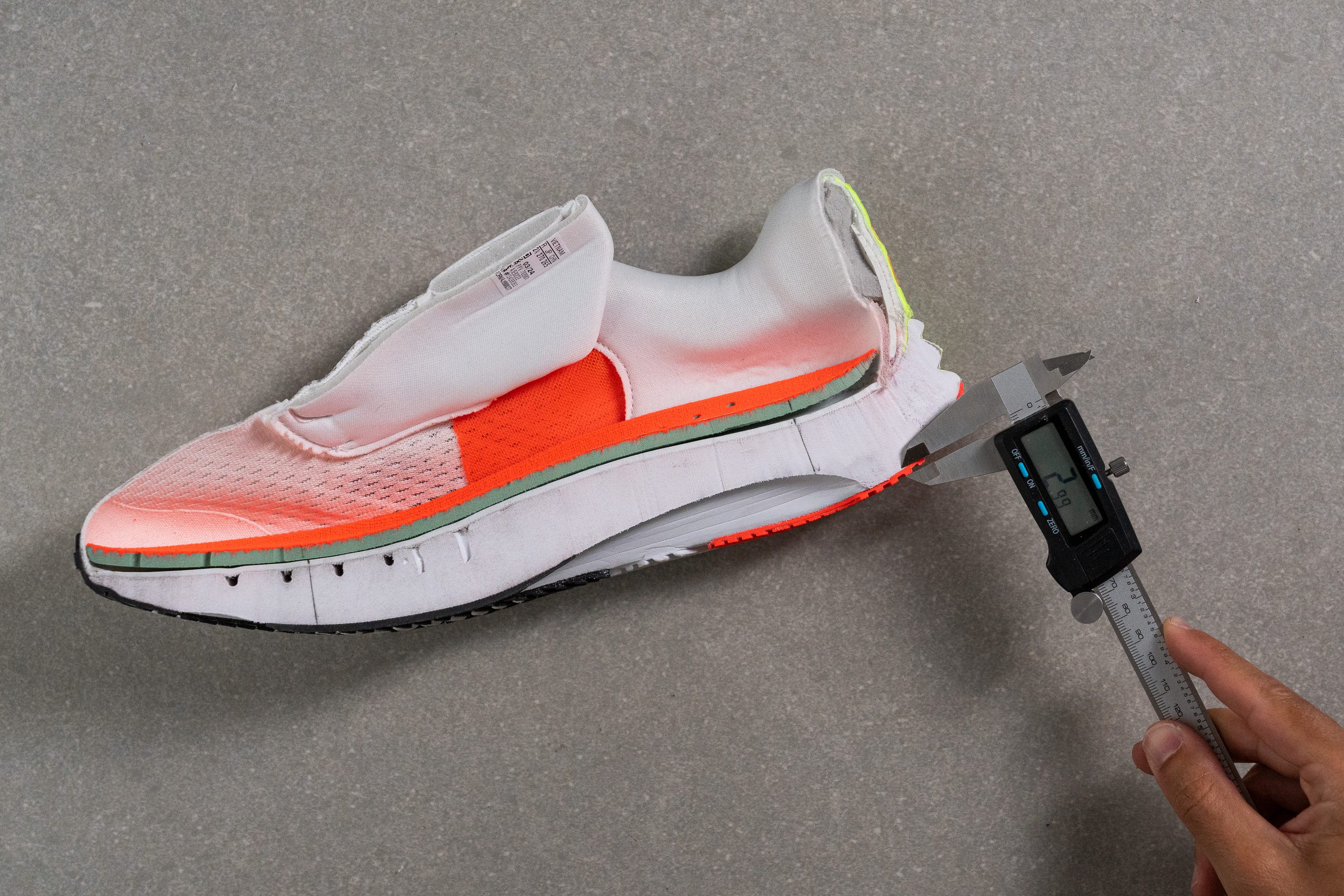
| Adistar 3 | 3.0 mm |
| Average | 3.2 mm |
Misc
Insole thickness
The insole is plush and comfortable despite its average 4.8-mm thickness. This feature sets it apart from other similarly priced daily trainers, offering a nice bonus.
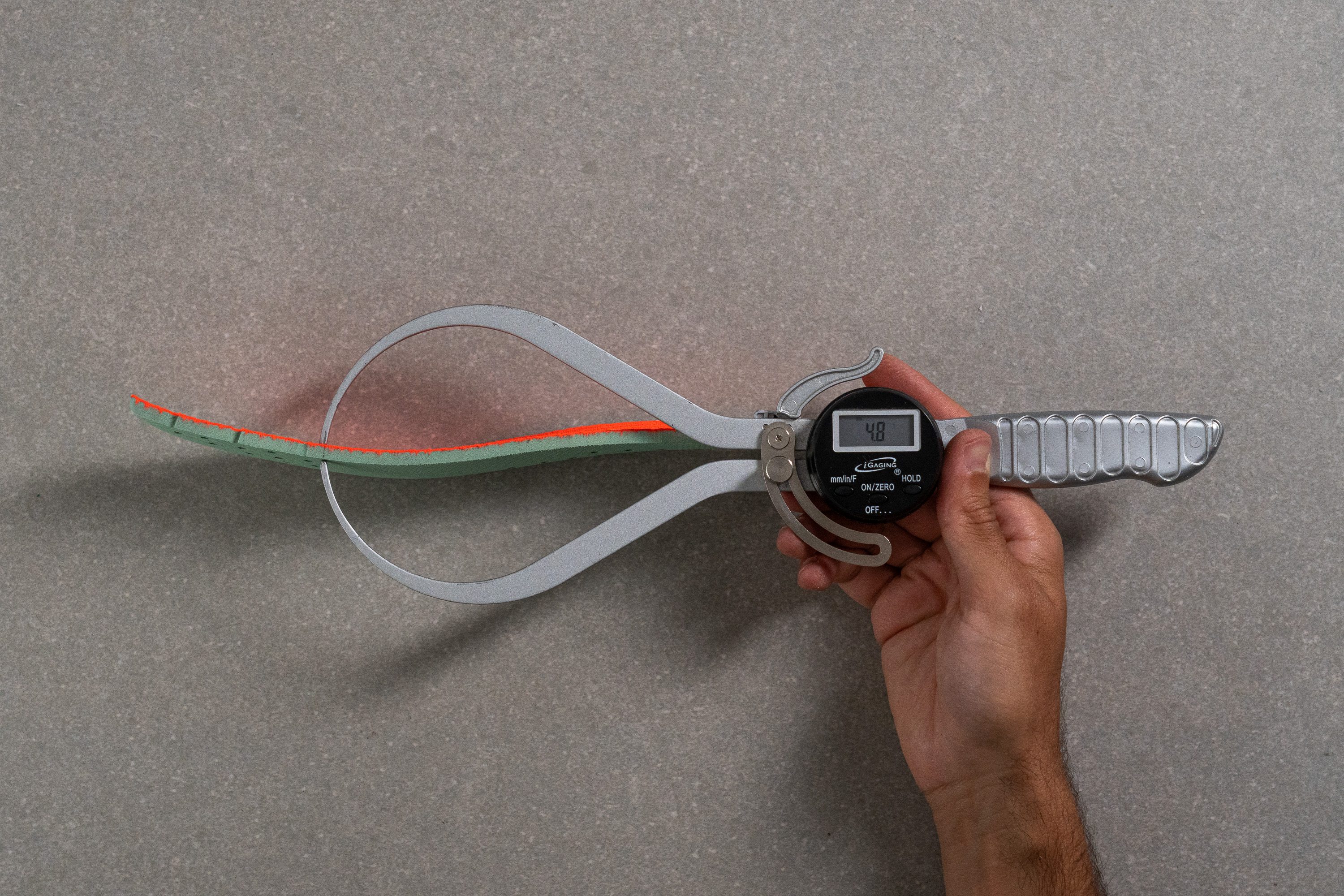
| Adistar 3 | 4.8 mm |
| Average | 4.5 mm |
Removable insole
We discovered that the insole is removable.
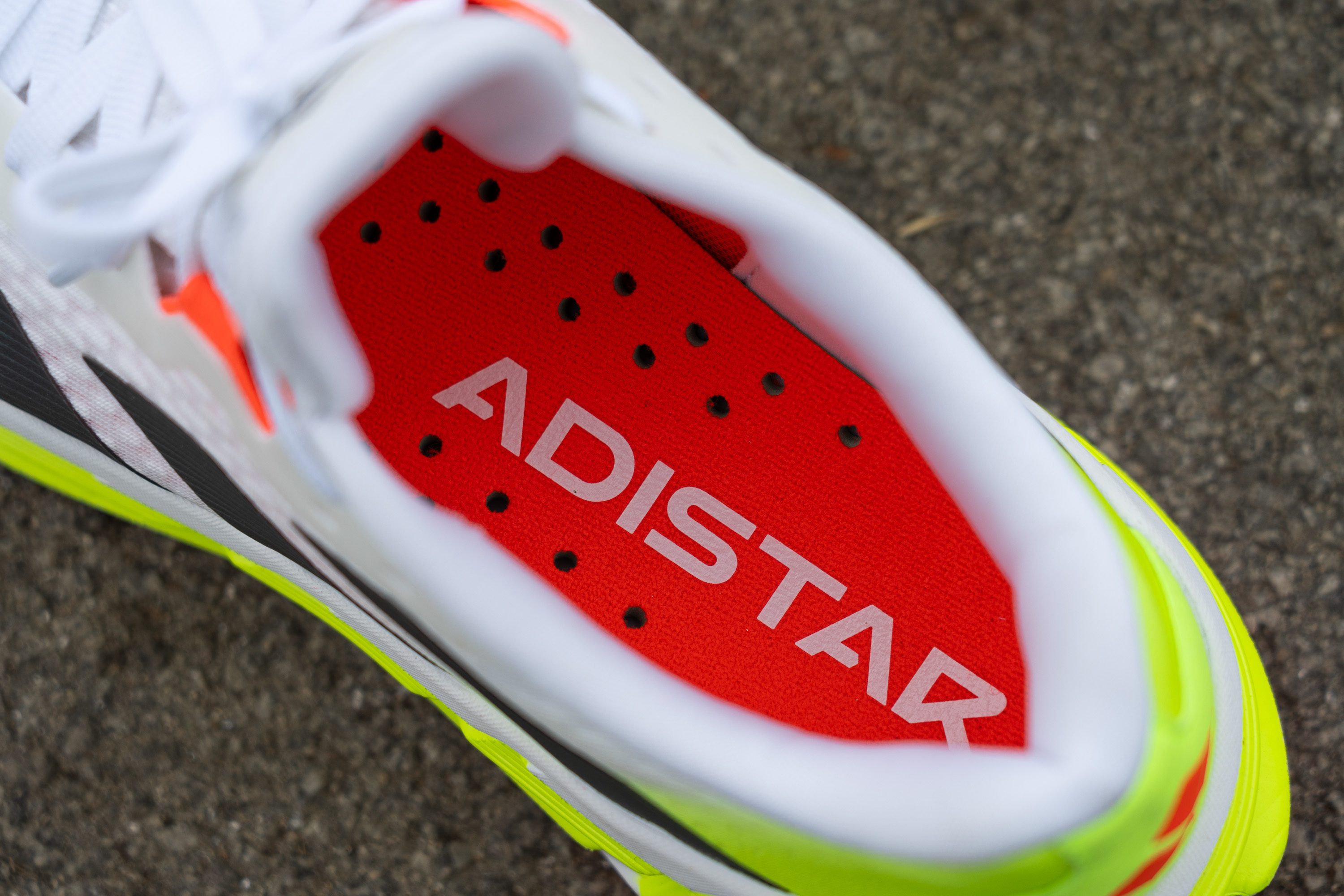
However, given that Adidas has included a premium, perforated footbed, we think it's best to keep it in place unless replacing it is absolutely necessary.
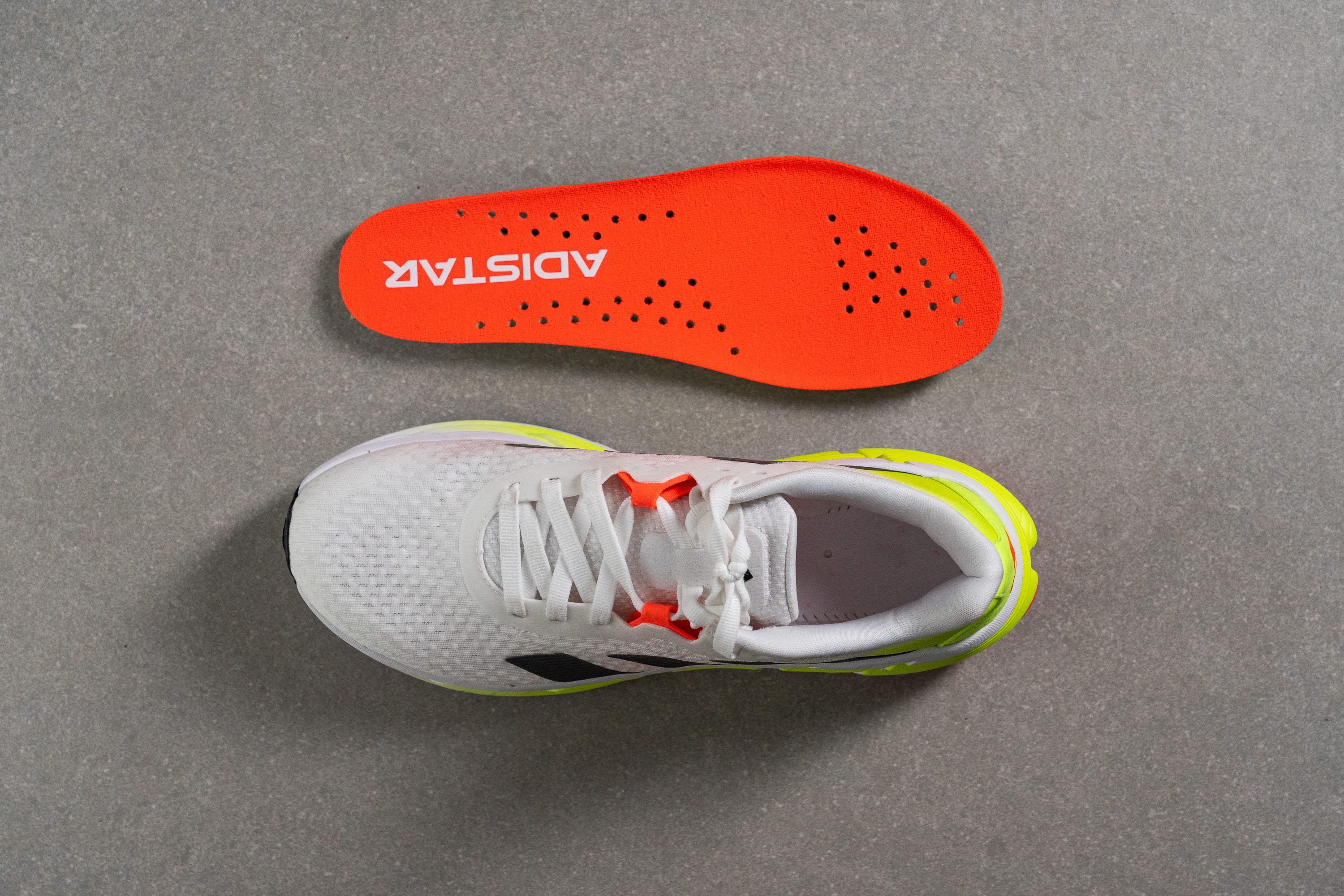
| Adistar 3 | Yes |
Midsole softness in cold (%)
We tested the Adistar 3's performance in cold conditions by placing it in the freezer for 20 minutes. Our findings show that the REPETITOR foam maintained what we consider a normal behavior, becoming just 26.5% firmer.
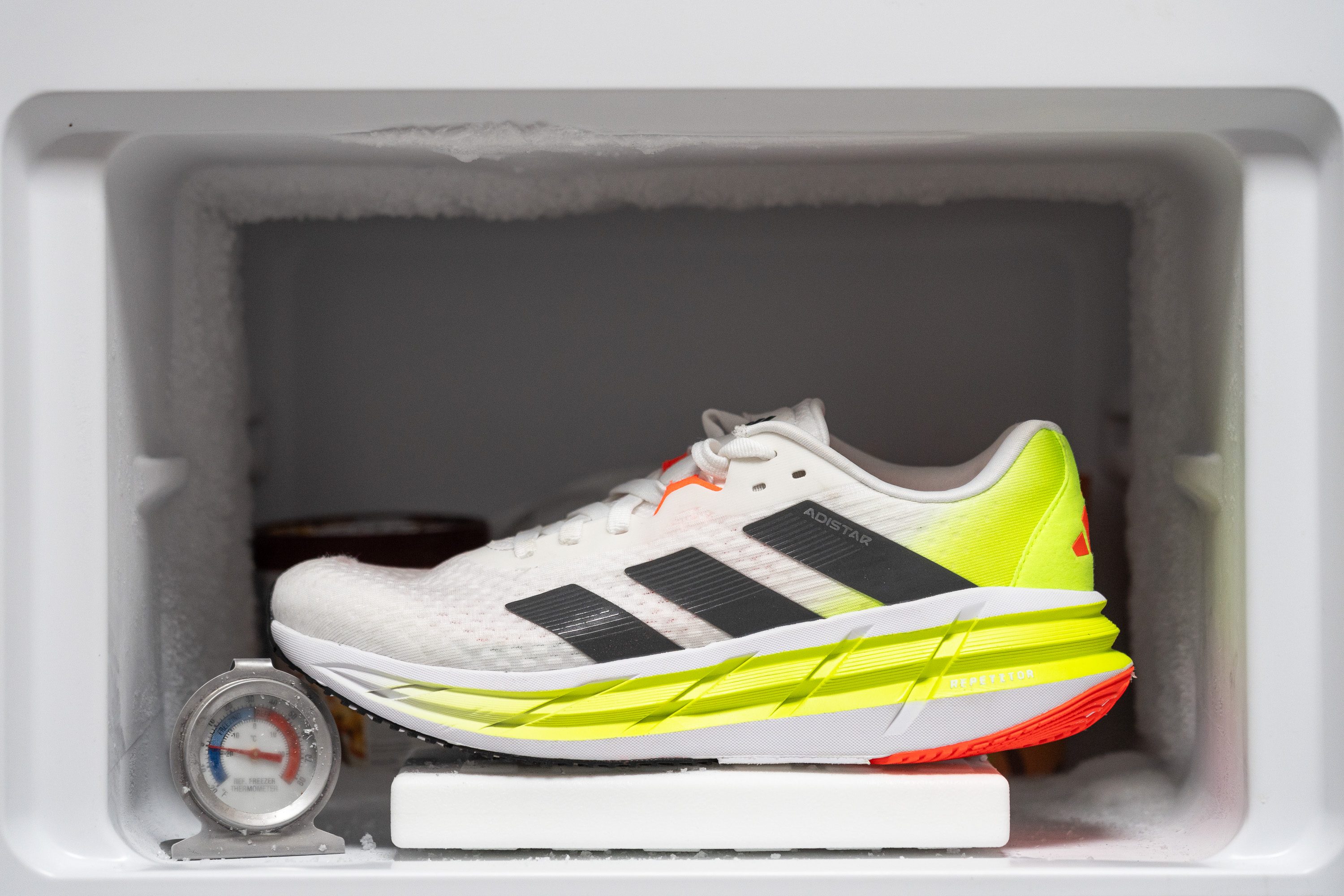
| Adistar 3 | 27% |
| Average | 24% |
Reflective elements
Adidas has cleverly incorporated reflective stripes into the Adistar 3, serving a dual purpose. Not only do they enhance visibility for night safety, but they also subtly advertise the brand, making it clear you're wearing Adidas footwear!
| Adistar 3 | Yes |
Tongue padding
While we weren't thrilled that the tongue isn't gusseted, its plushness and thickness—measuring 12.3 mm—ensure excellent lockdown and prevent it from sliding side to side. The integrated tongue loop also contributes a bit.
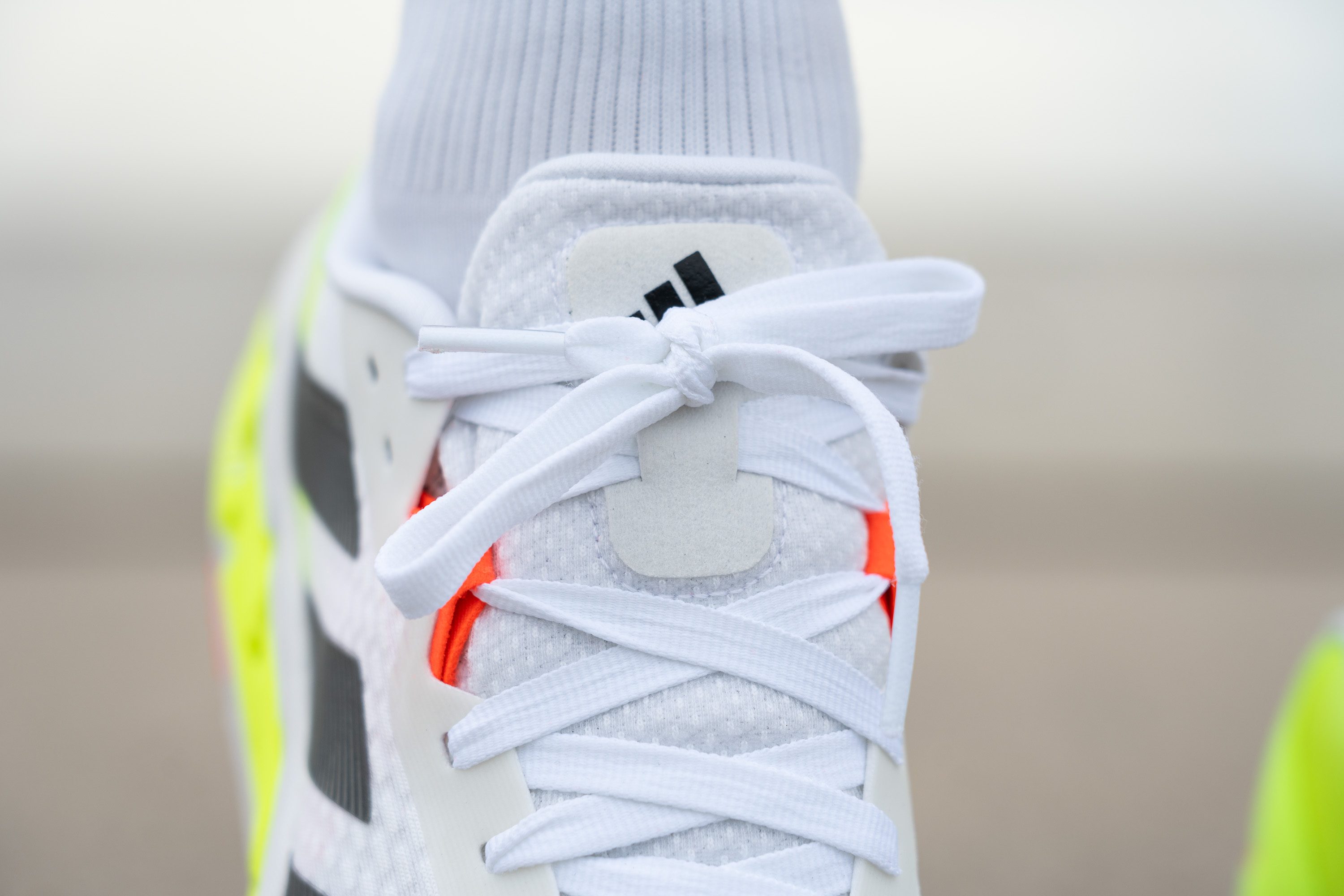
The lacing system maintains the same hybrid design as the previous version, combining punched eyelets with a standout bright orange loop on each side.
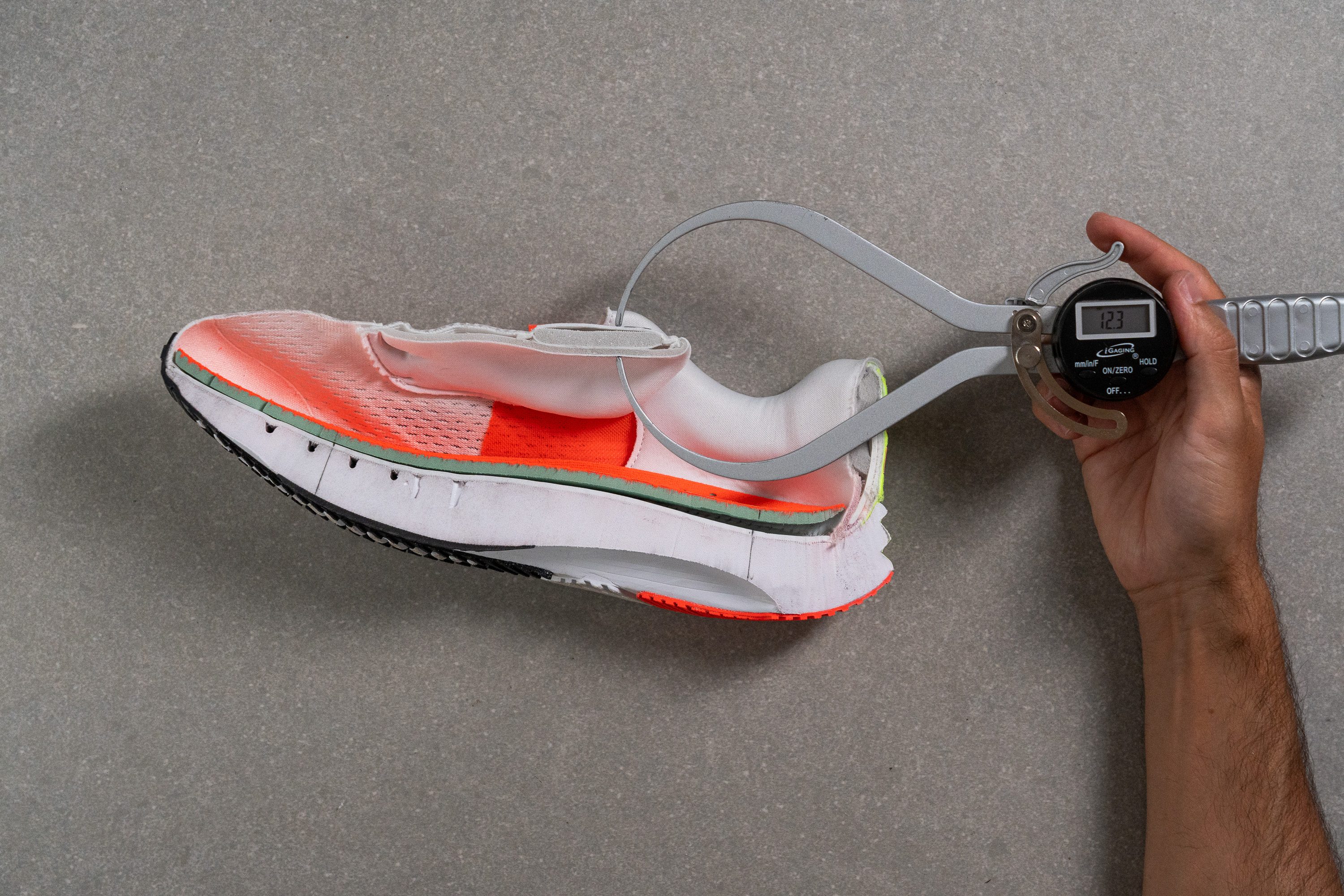
| Adistar 3 | 12.3 mm |
| Average | 5.7 mm |
Tongue: gusset type
The tongue of the shoe isn't attached to the sides—an expected feature considering its $130 price point.
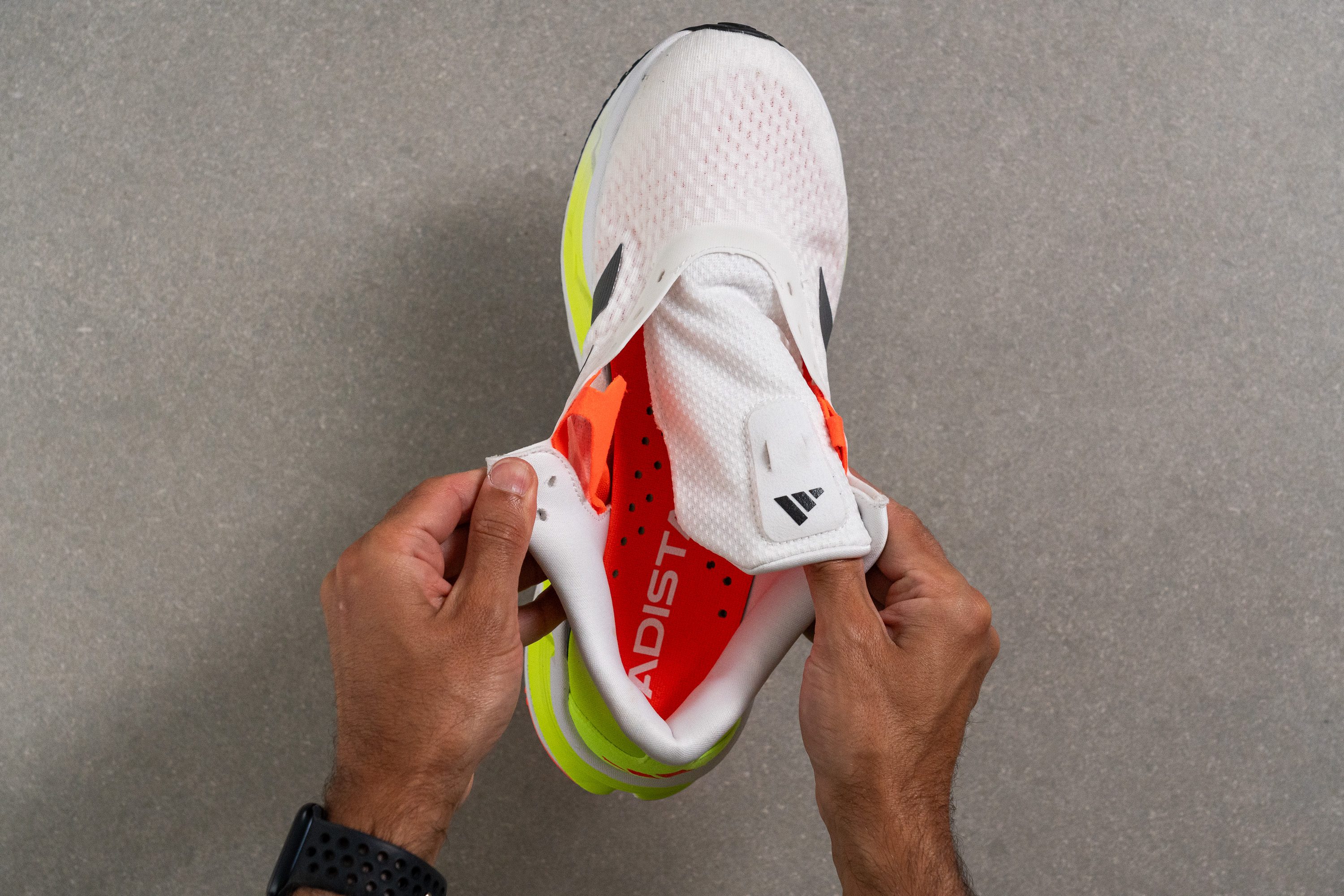
| Adistar 3 | None |
Heel tab
The Adistar 3 forgoes a heel tab, maintaining the simplistic design familiar in previous versions.
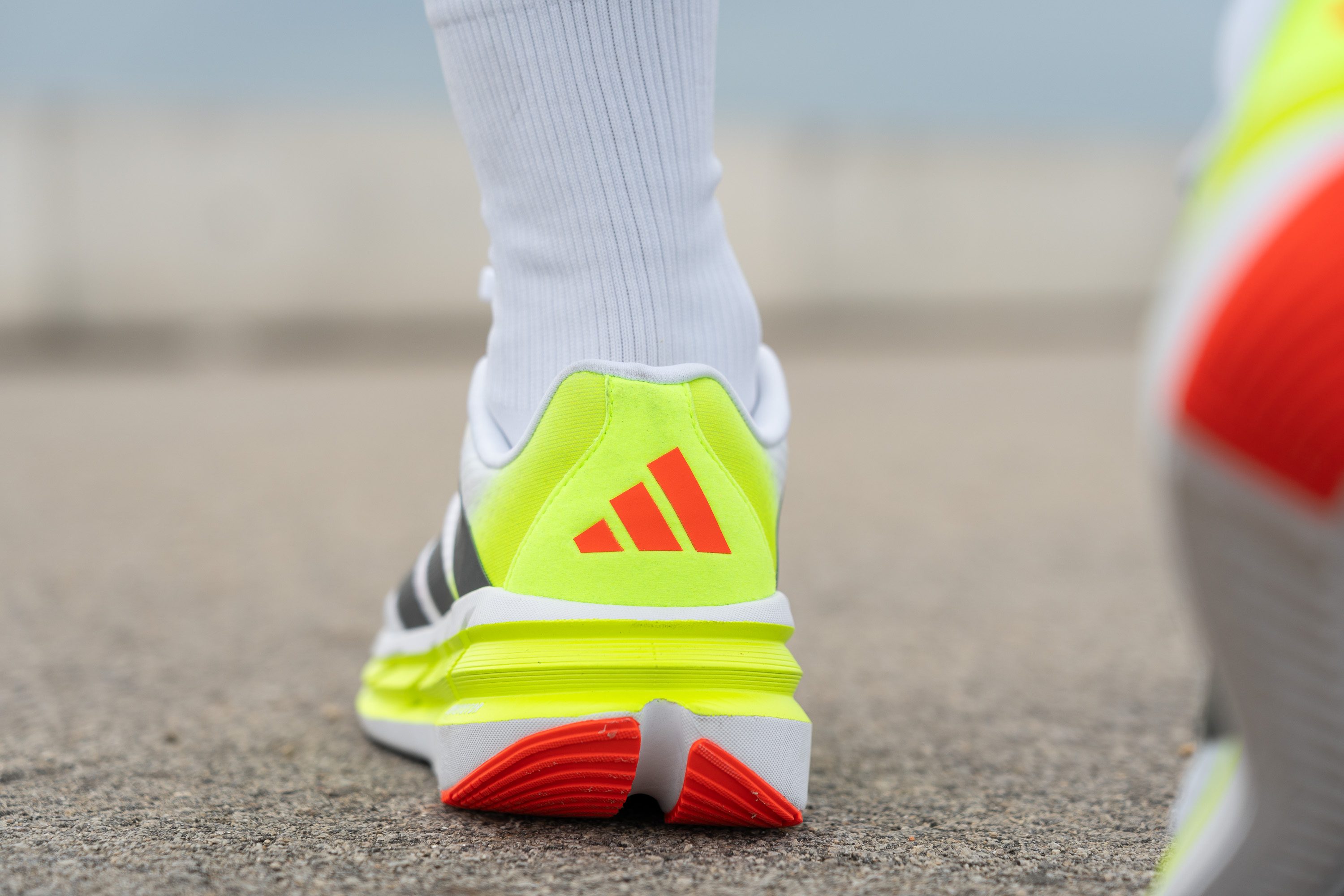
However, Adidas has intensified this look with a prominent logo on the heel—coupled with the iconic three stripes, you essentially become a running billboard for them!
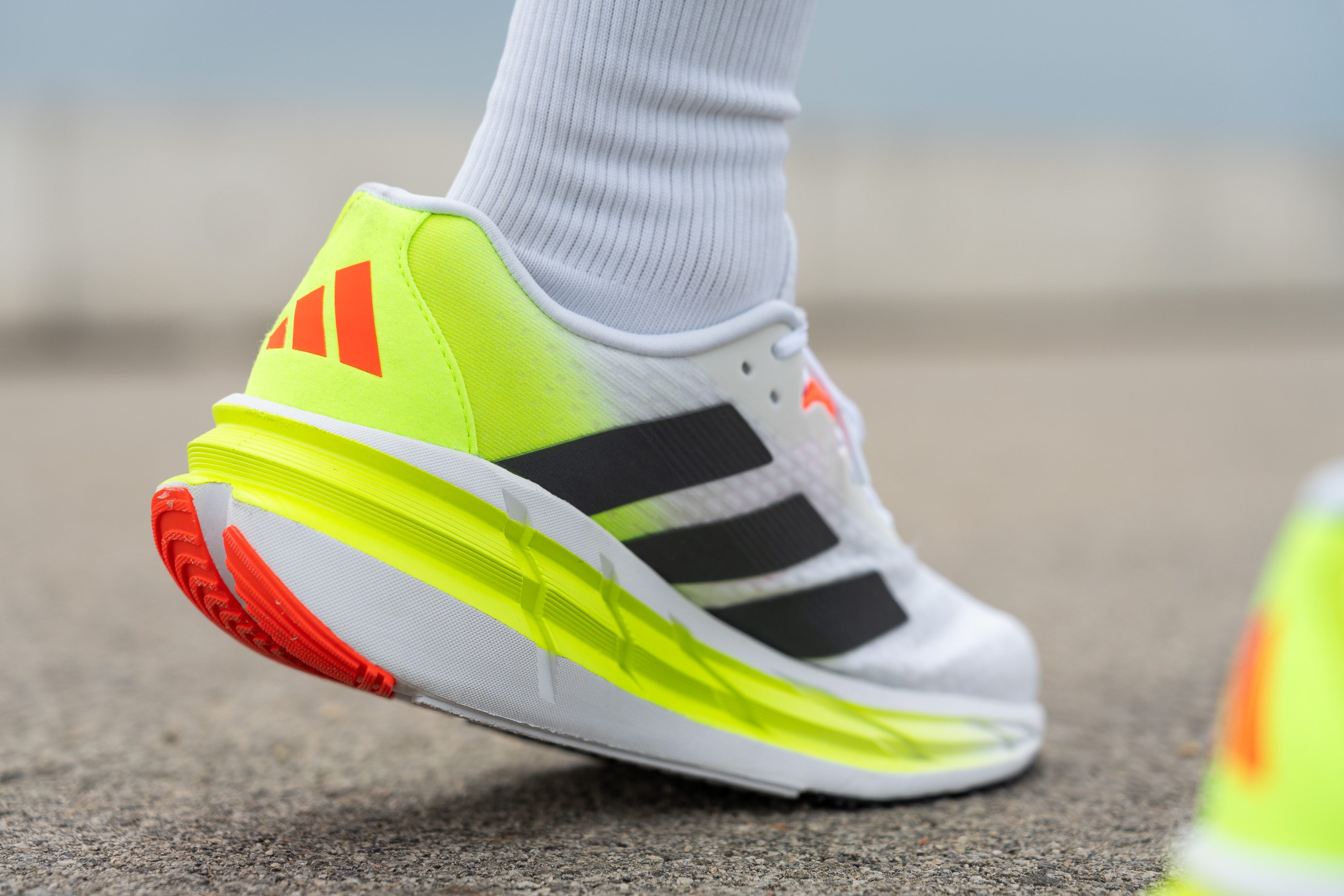
| Adistar 3 | None |

